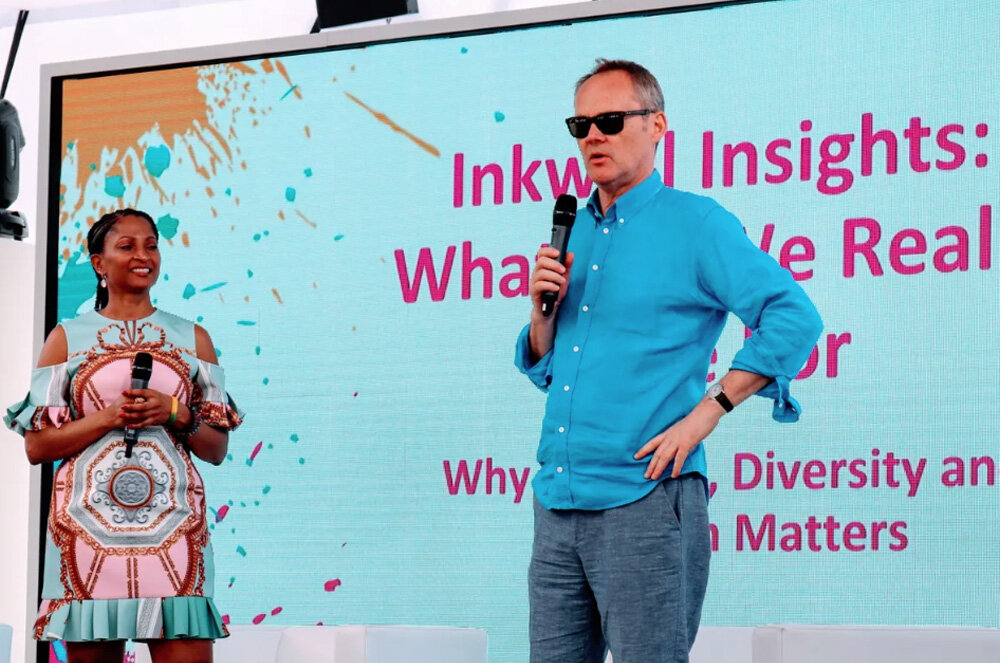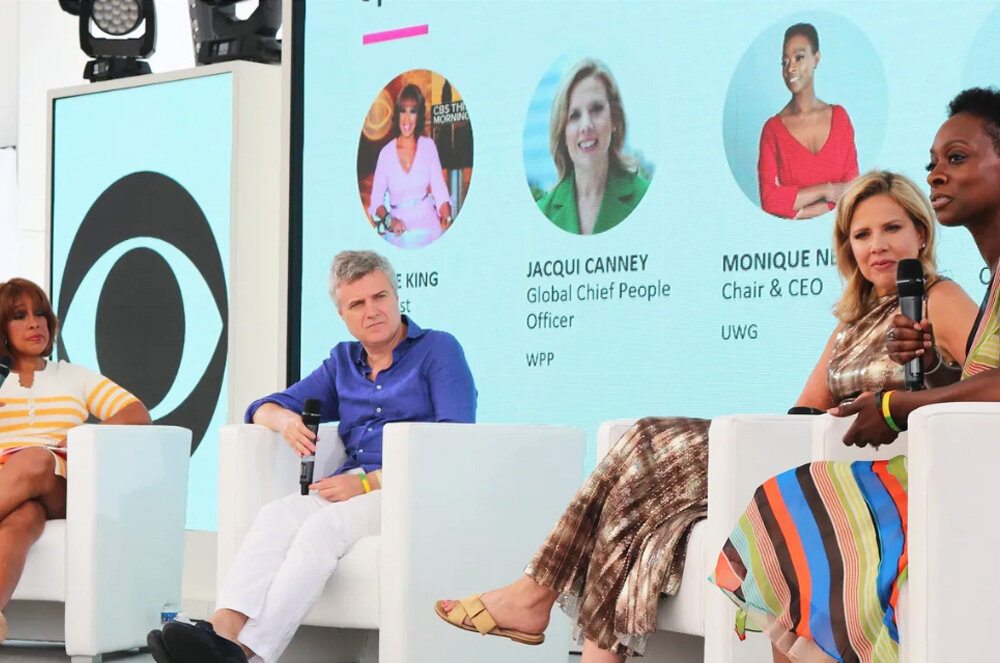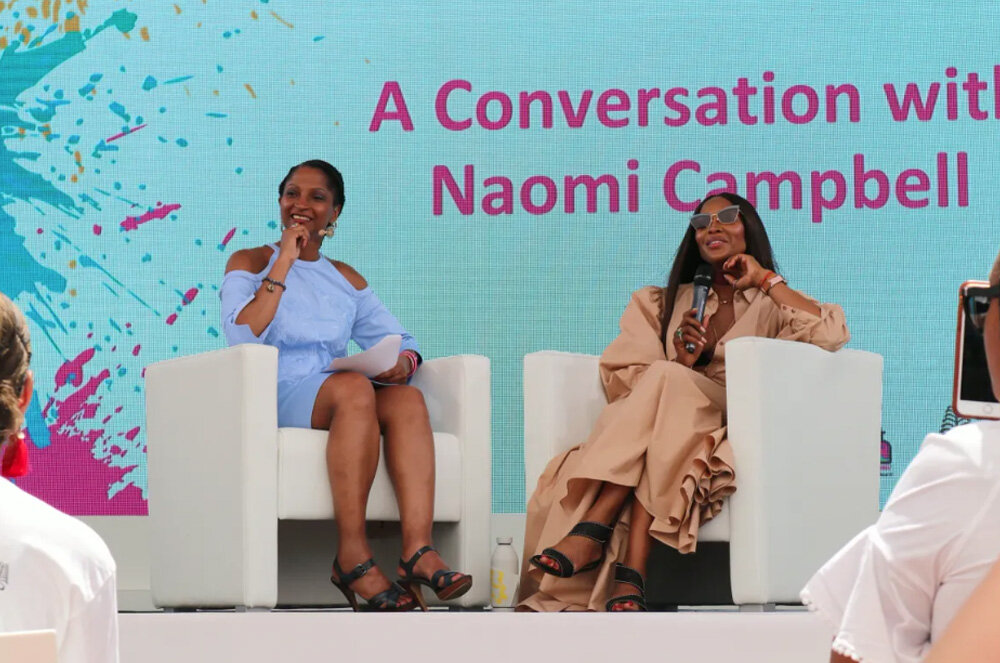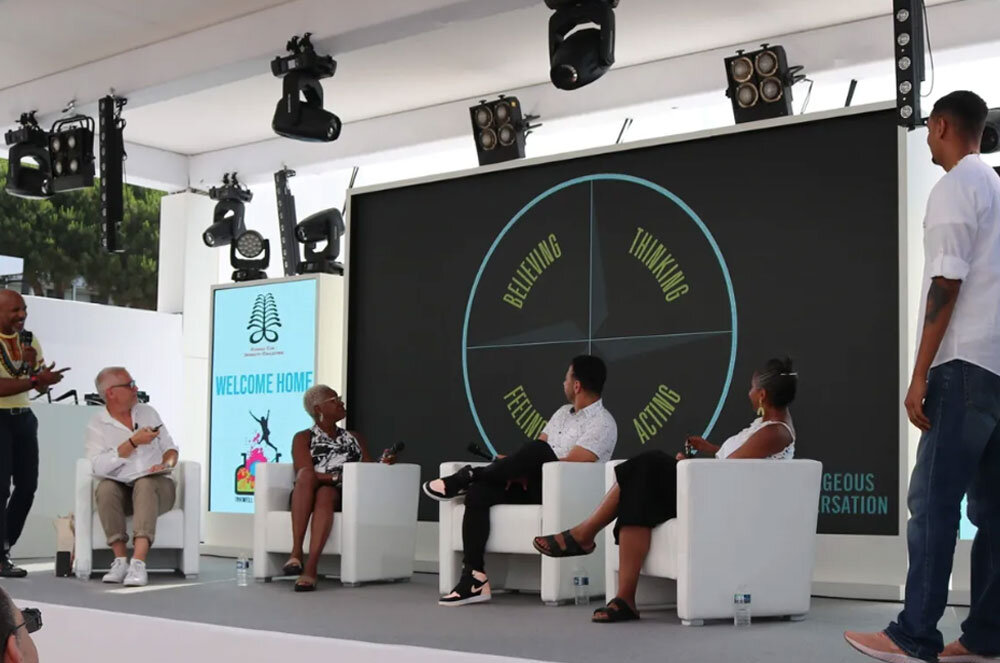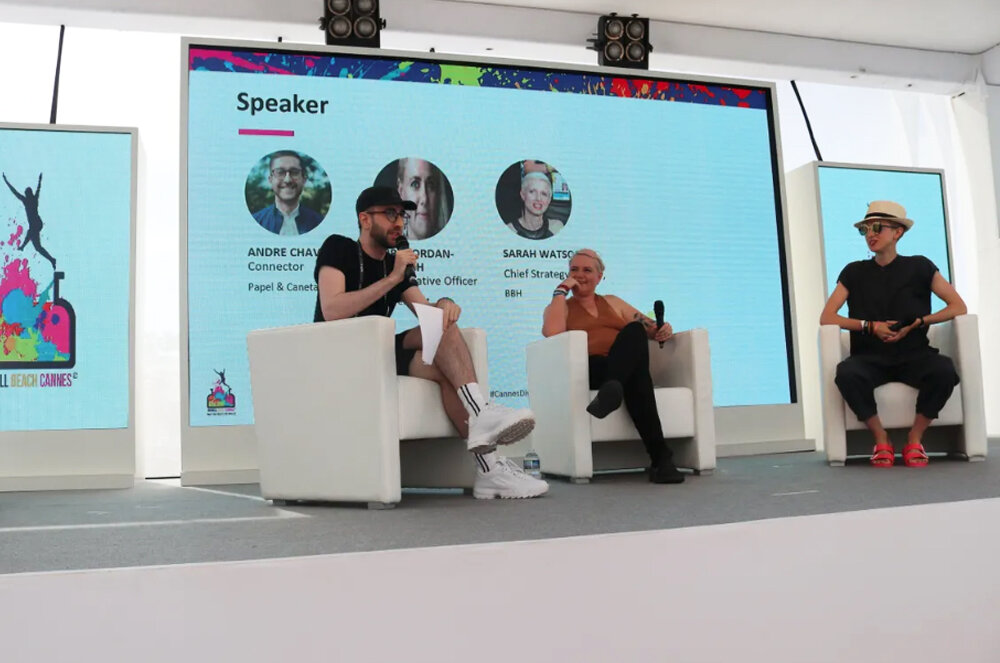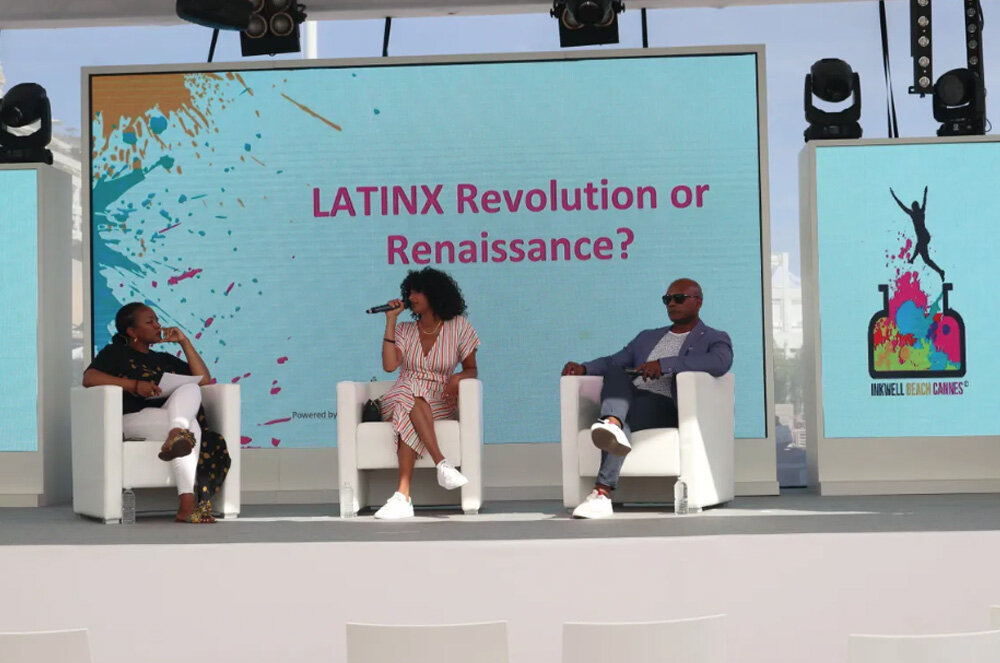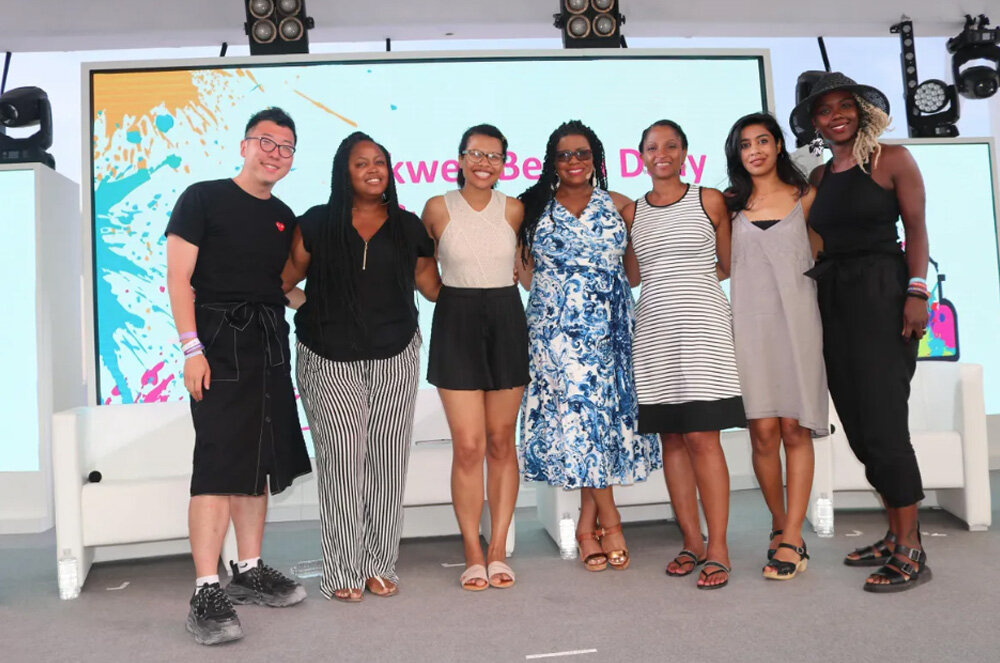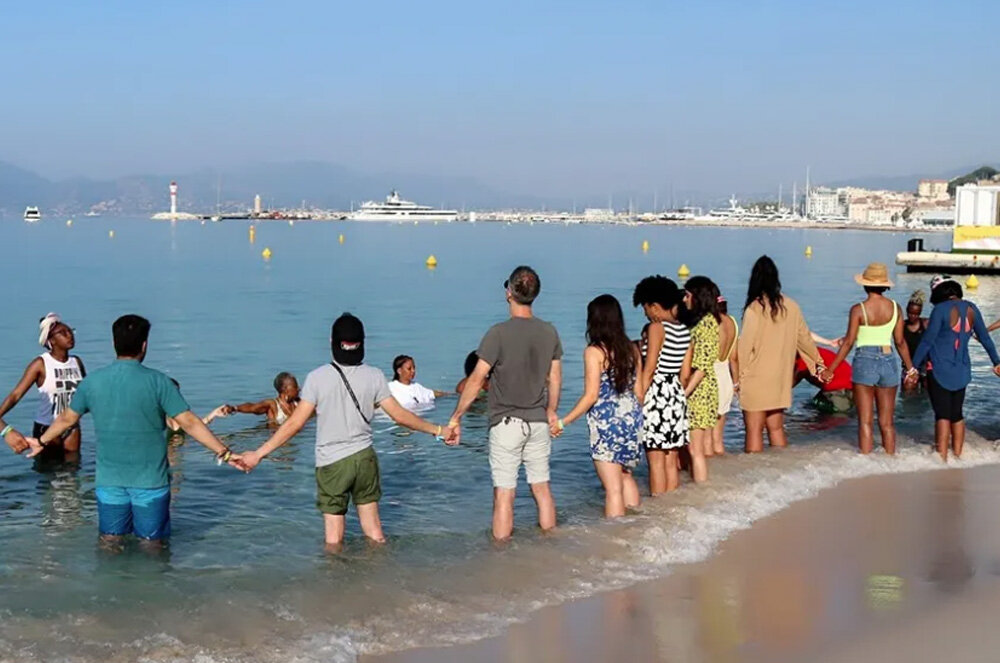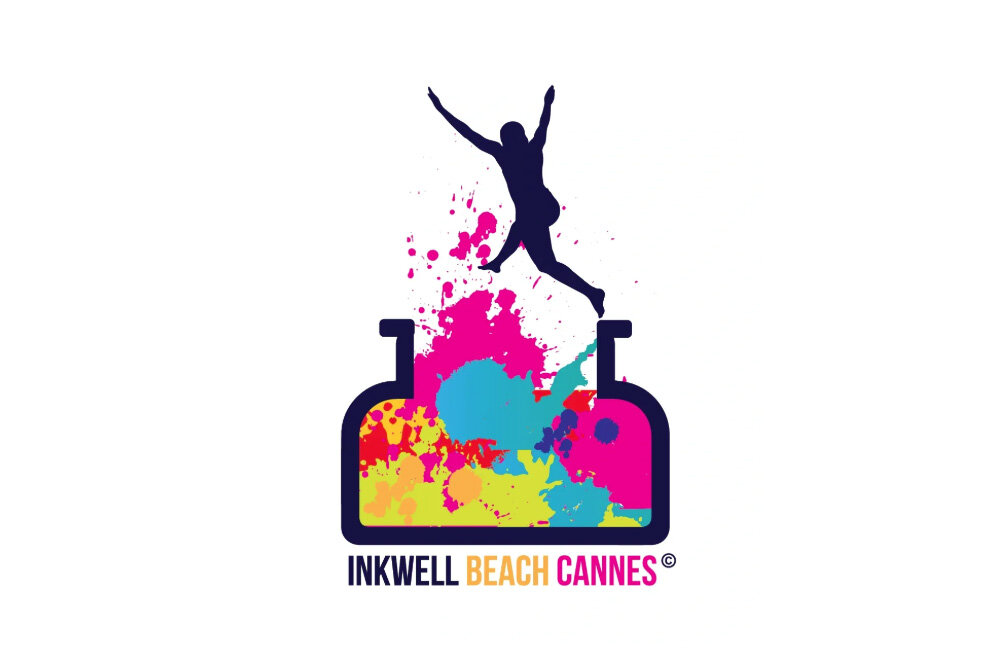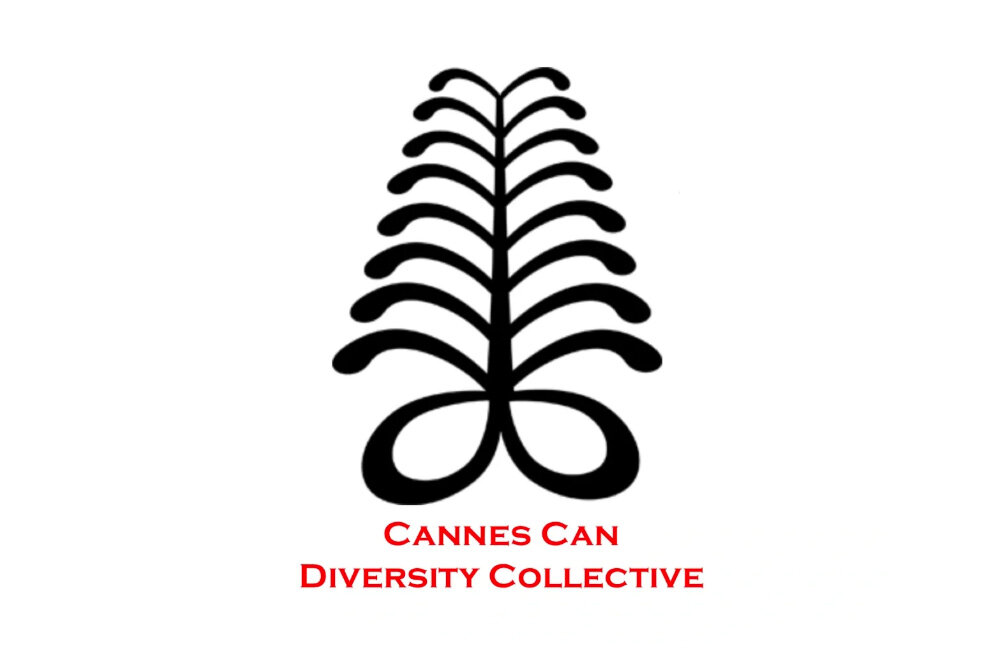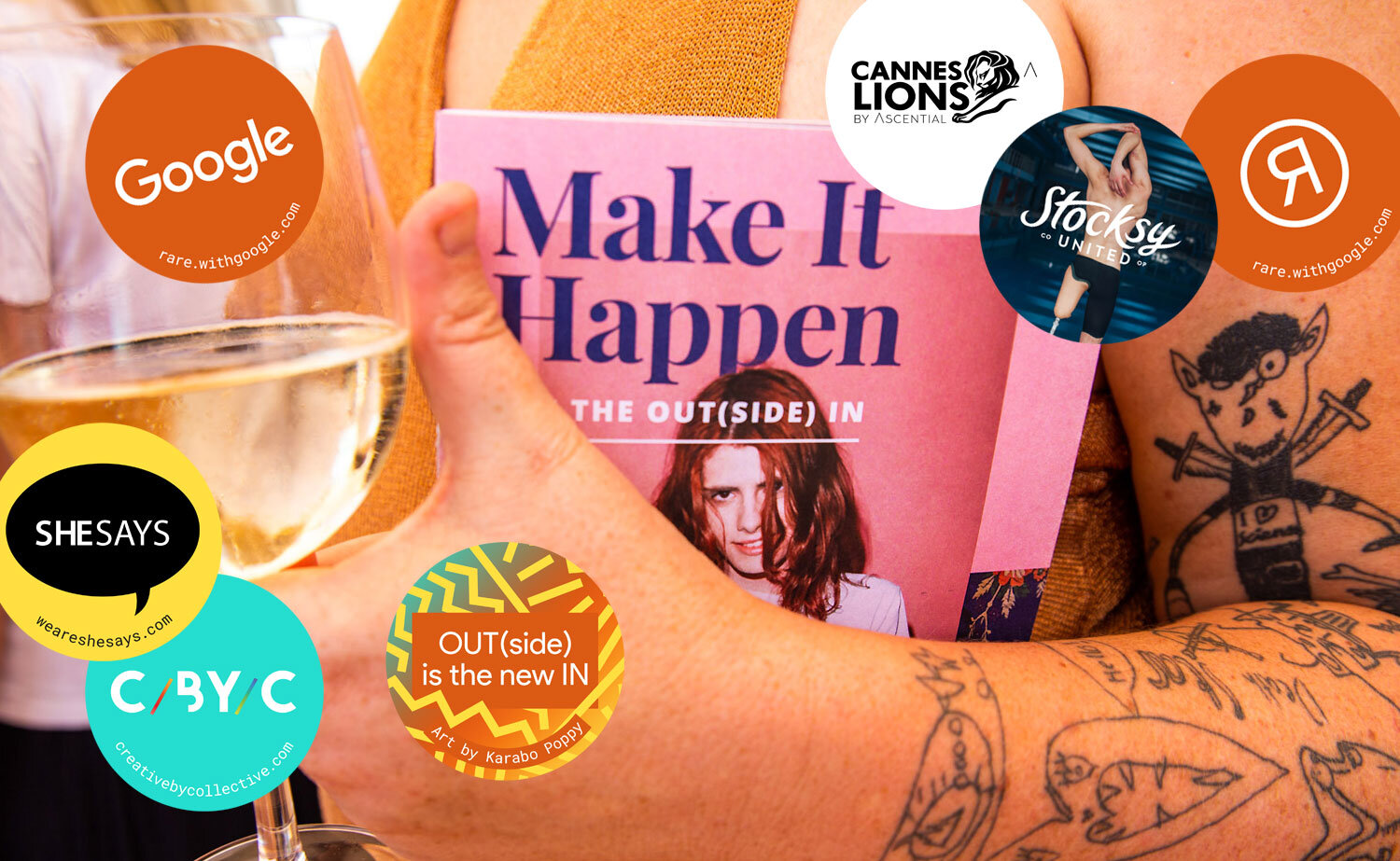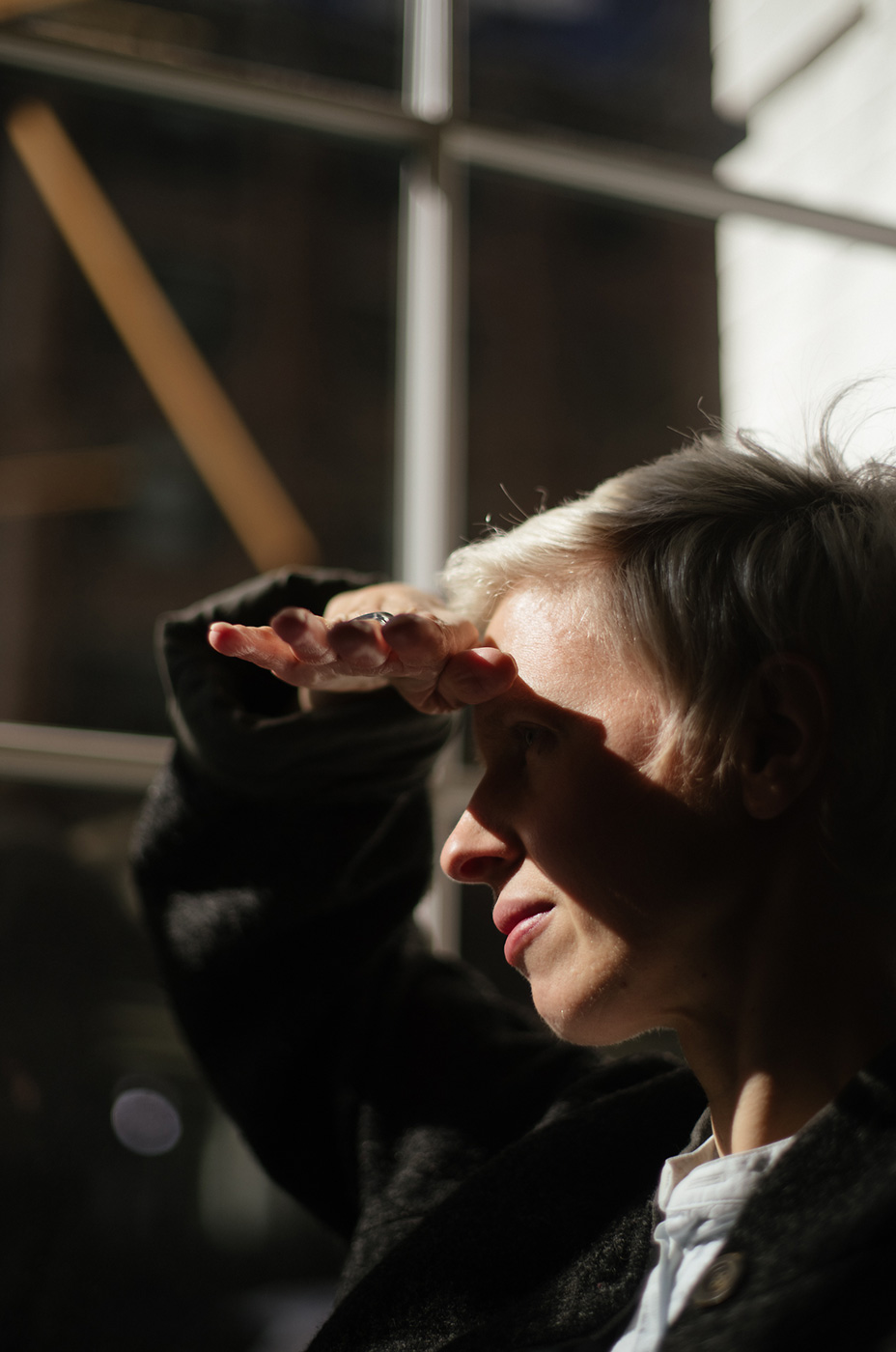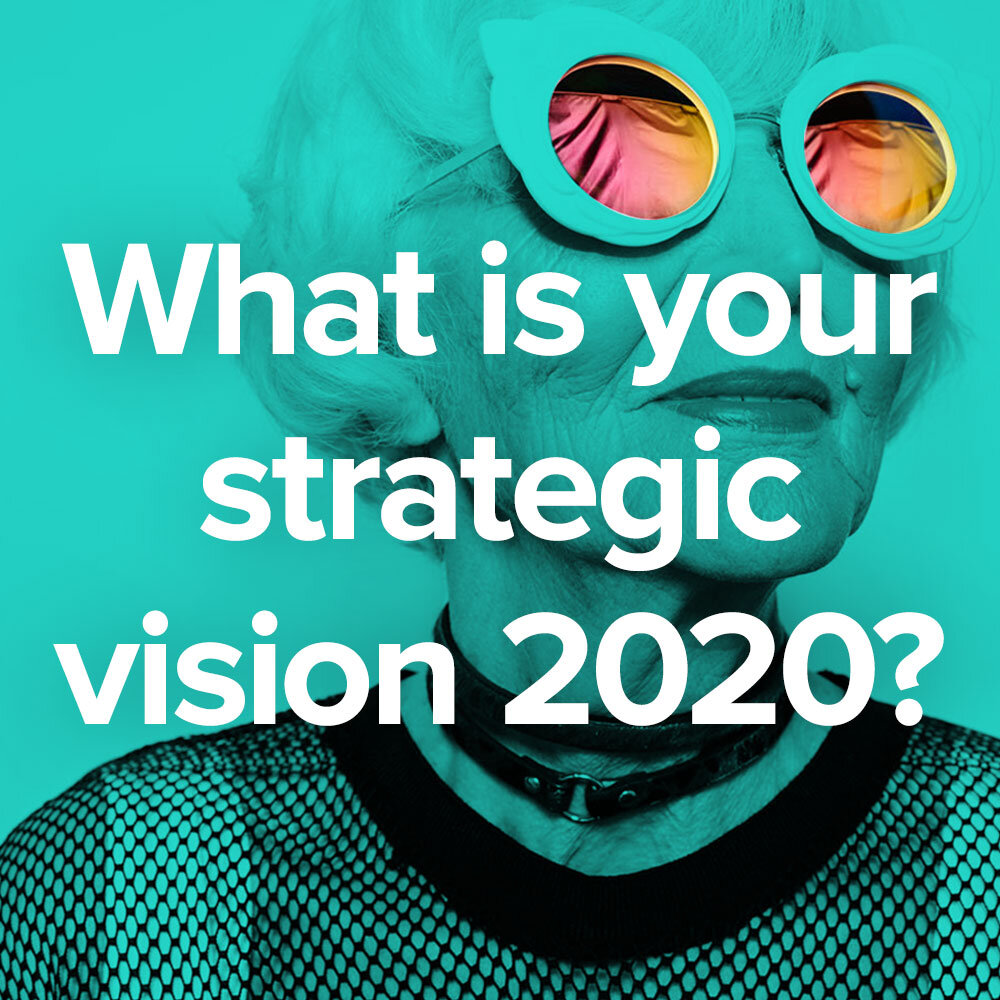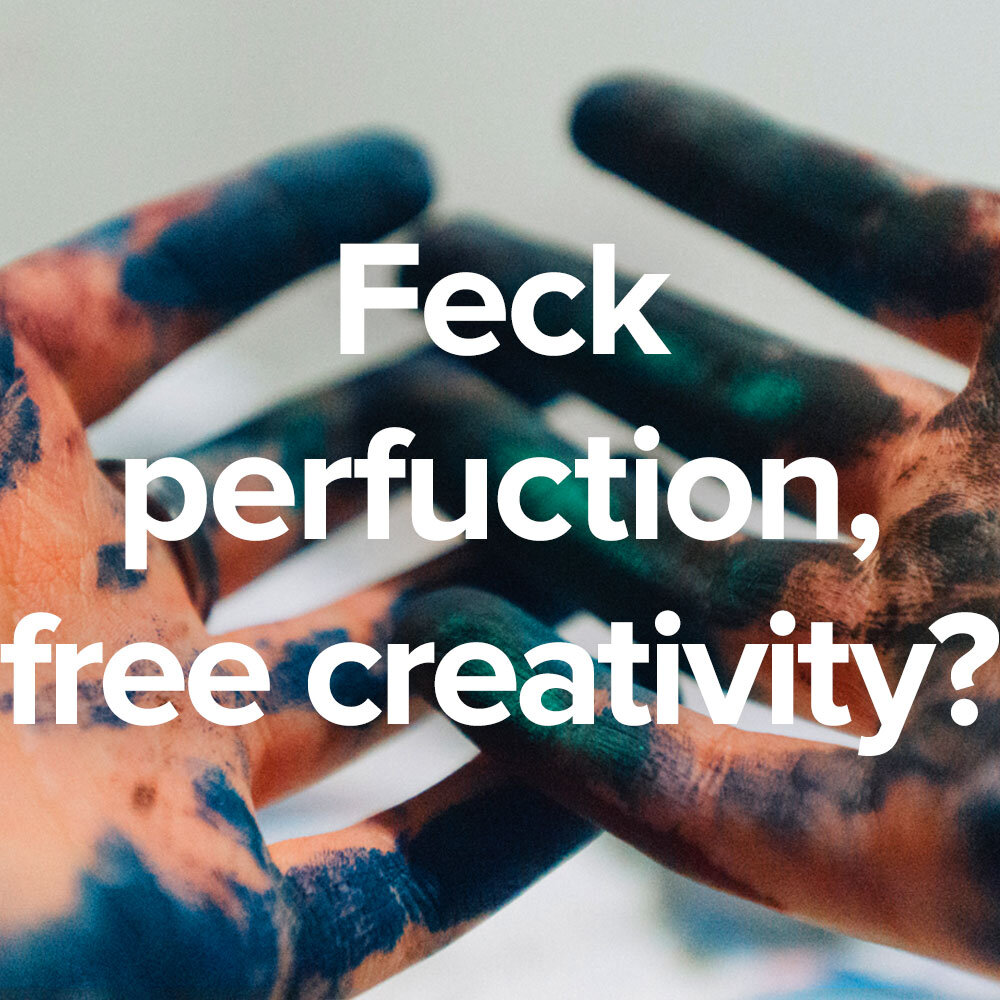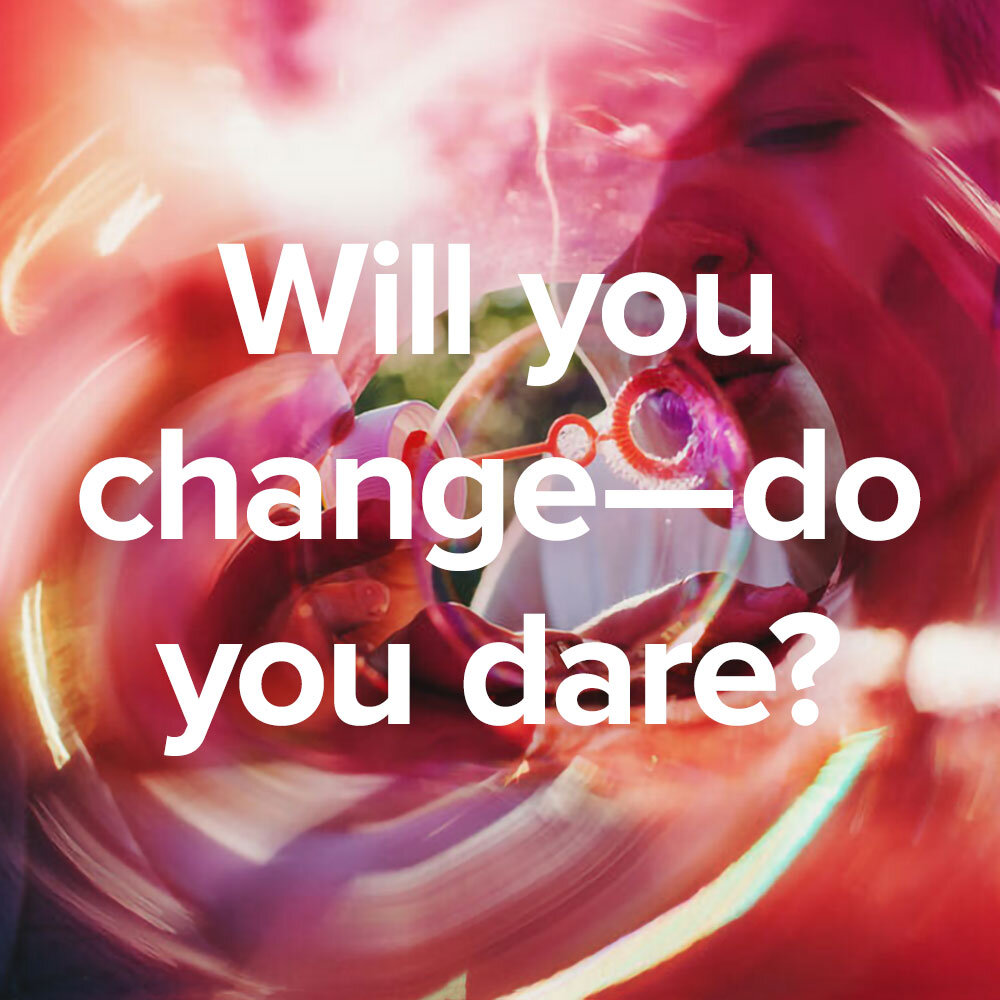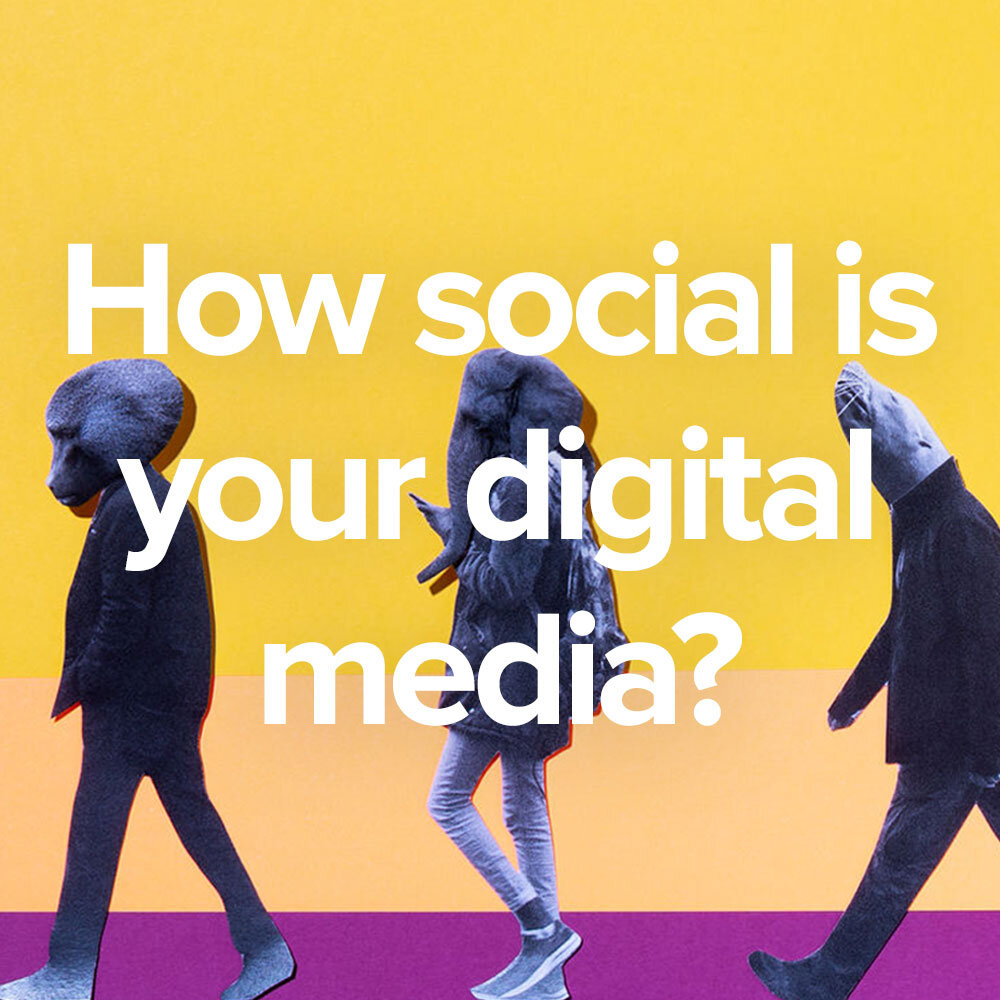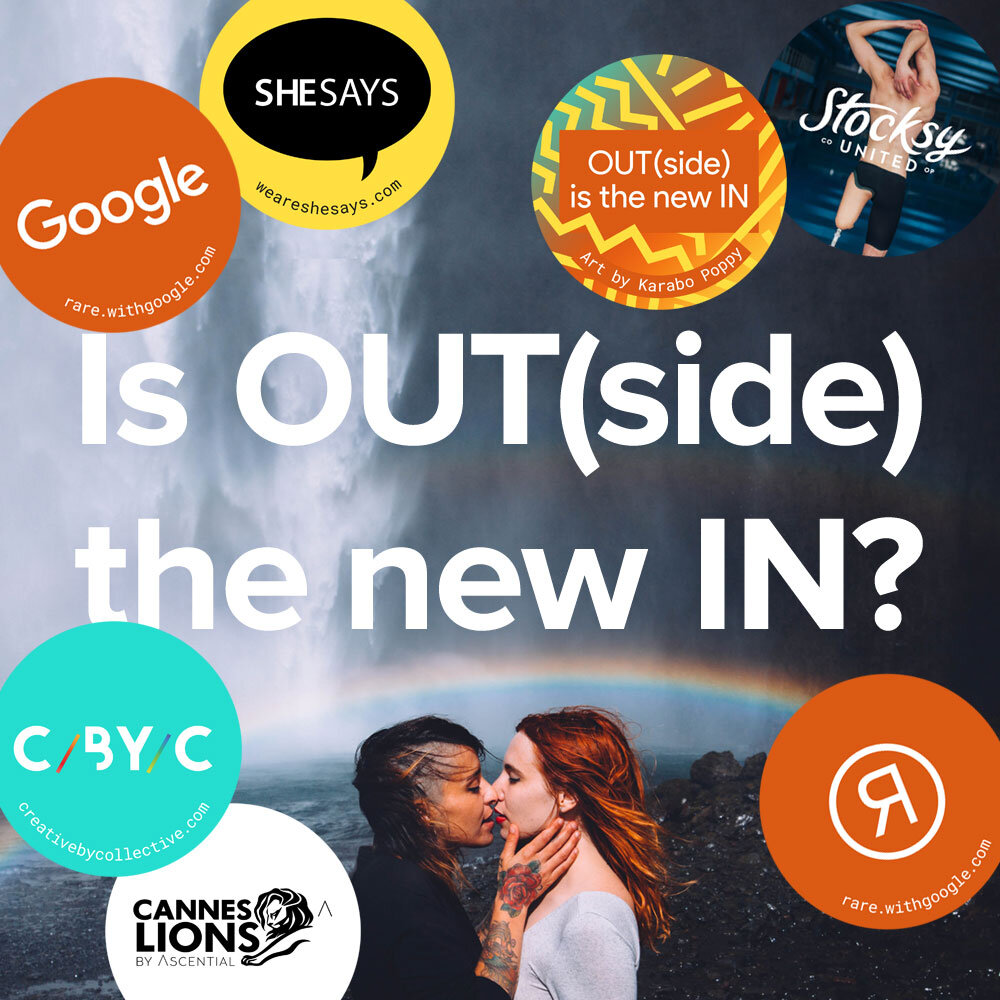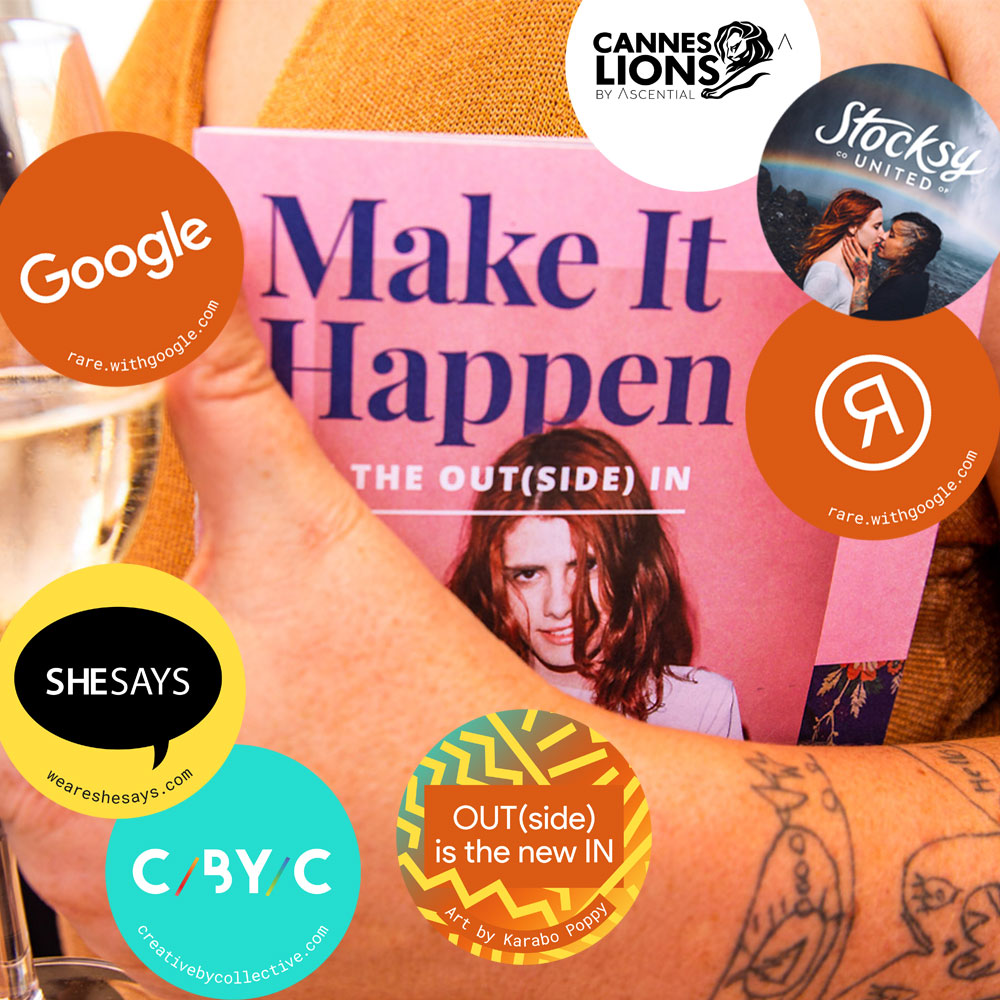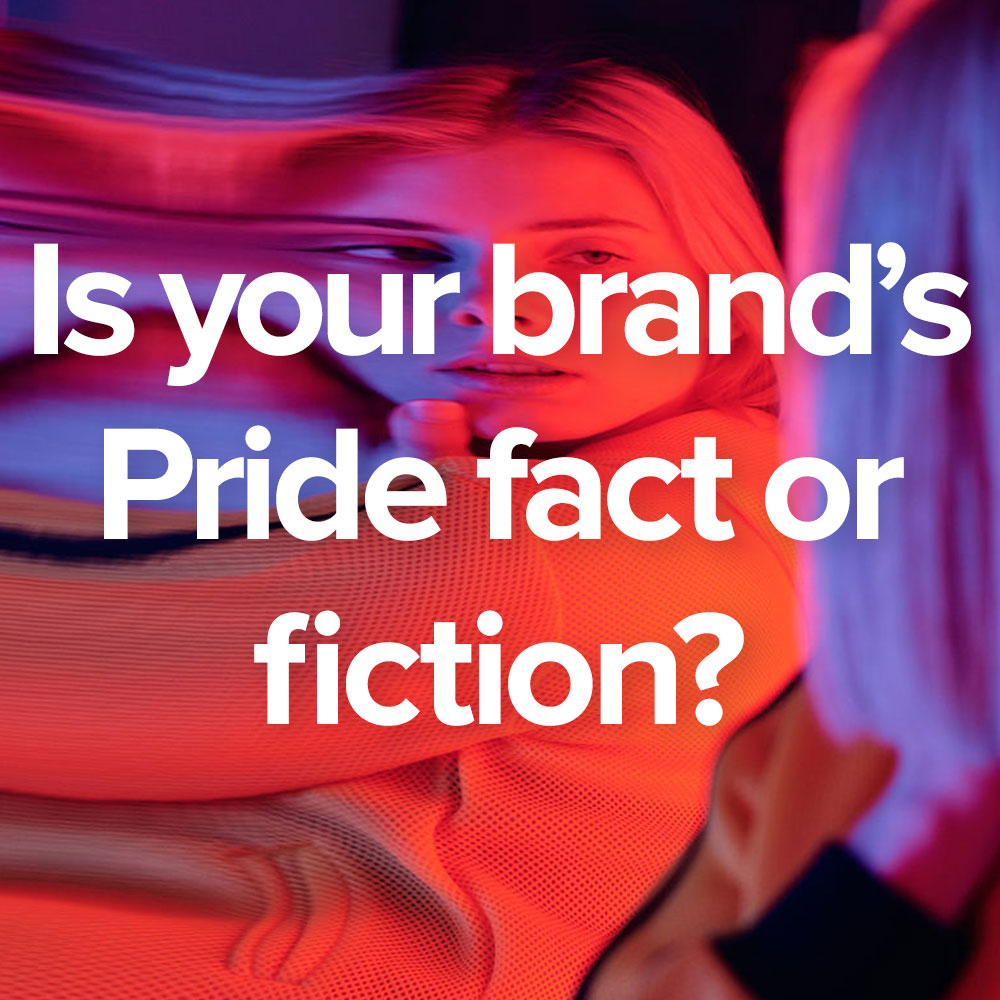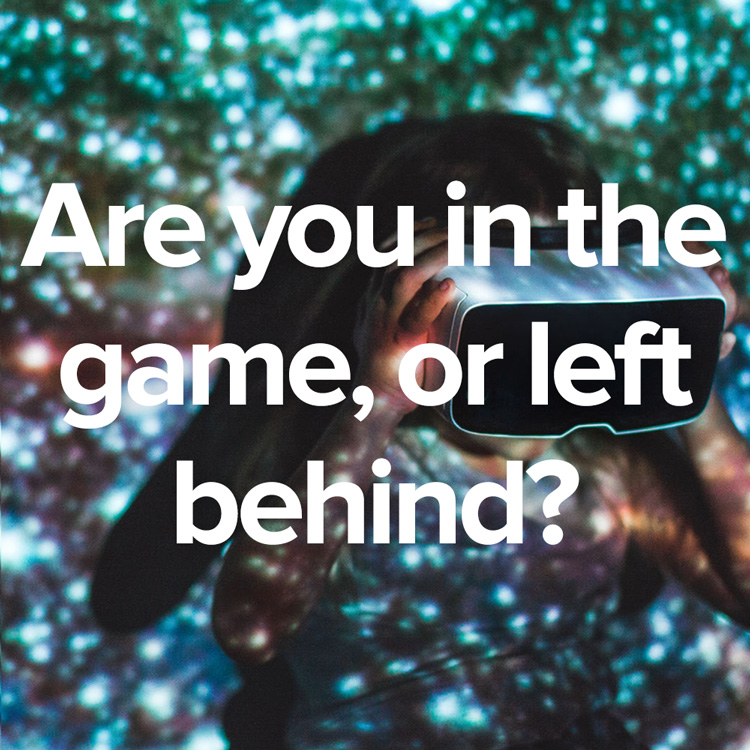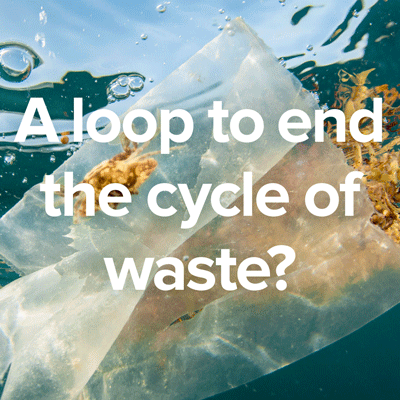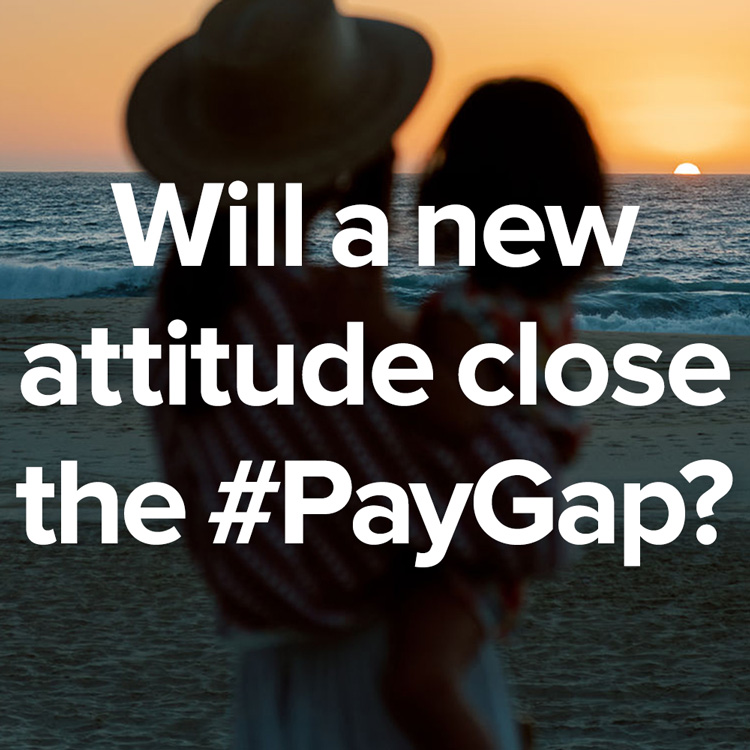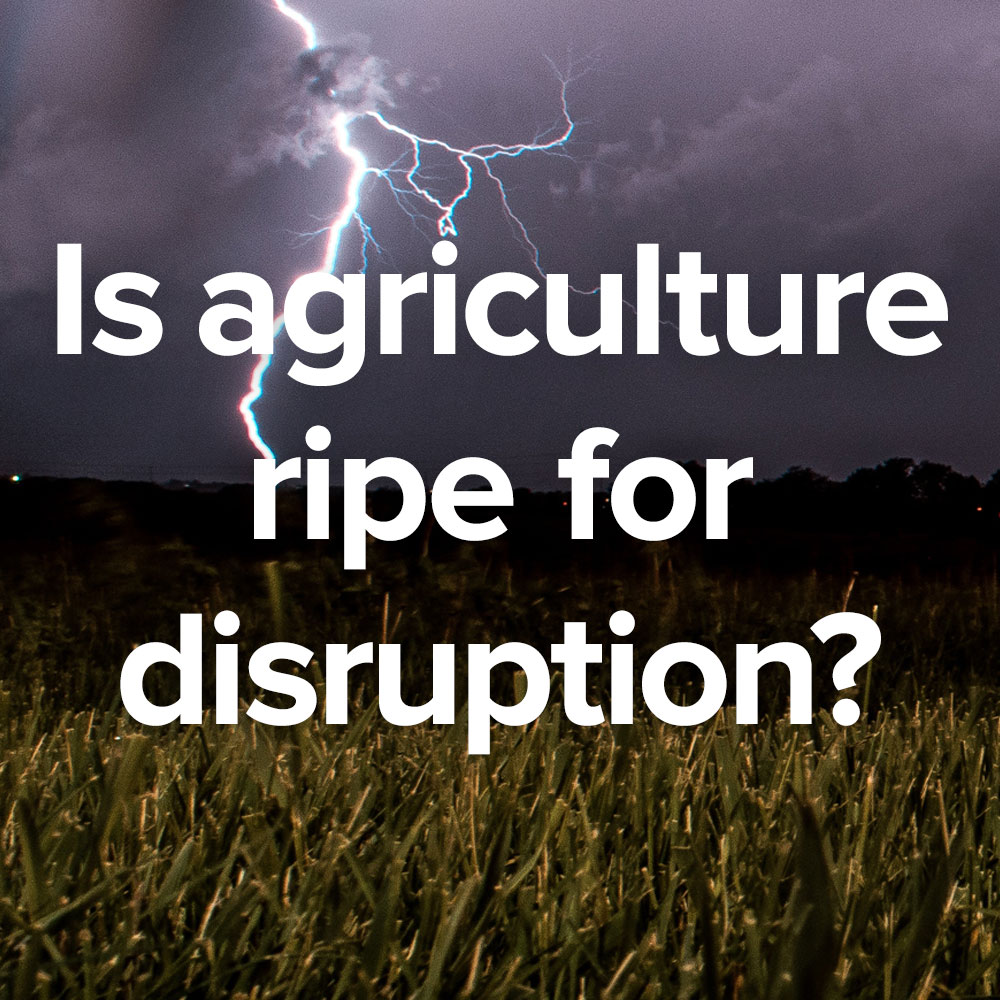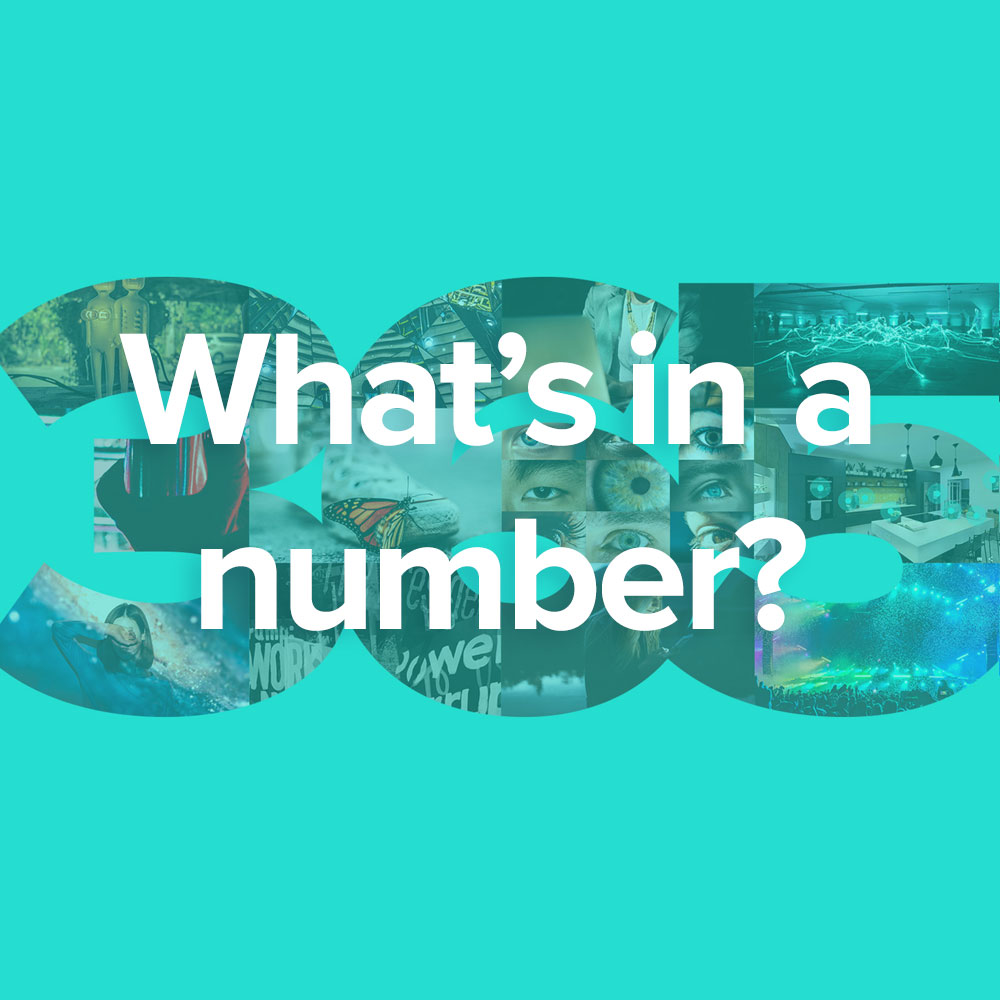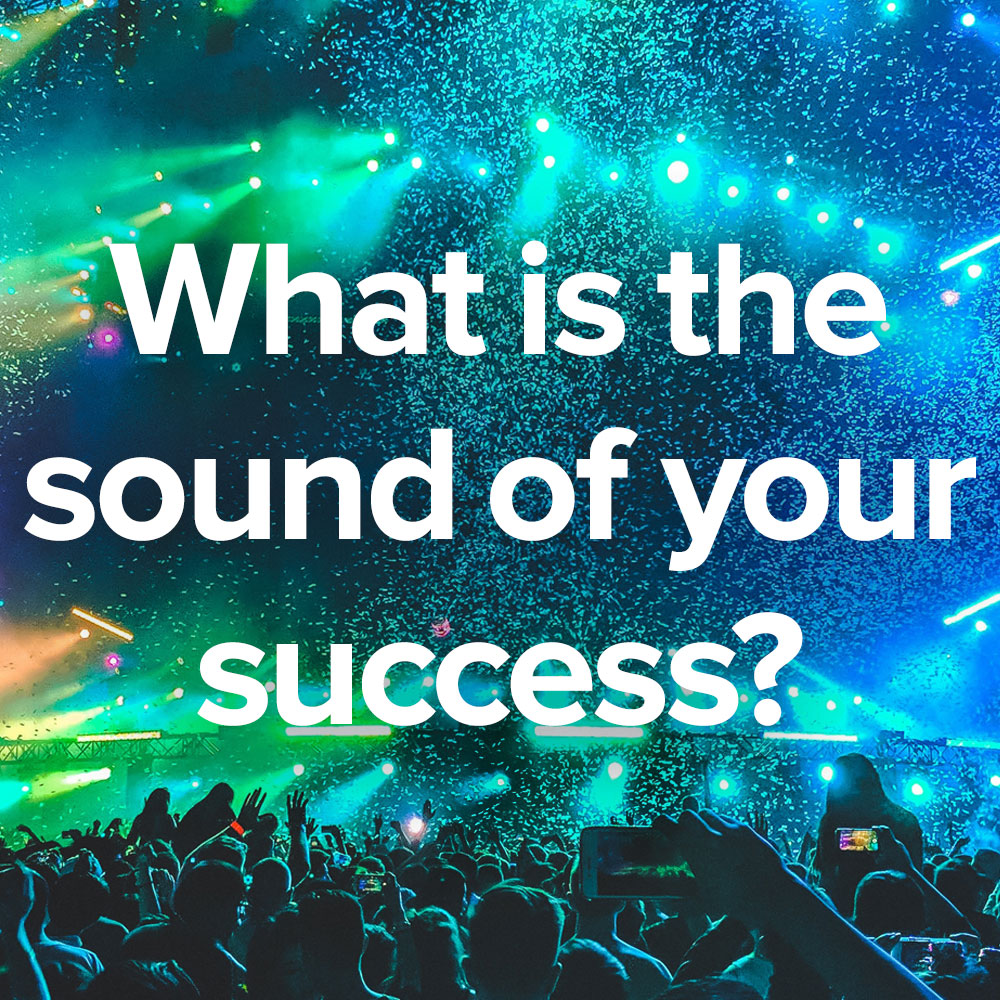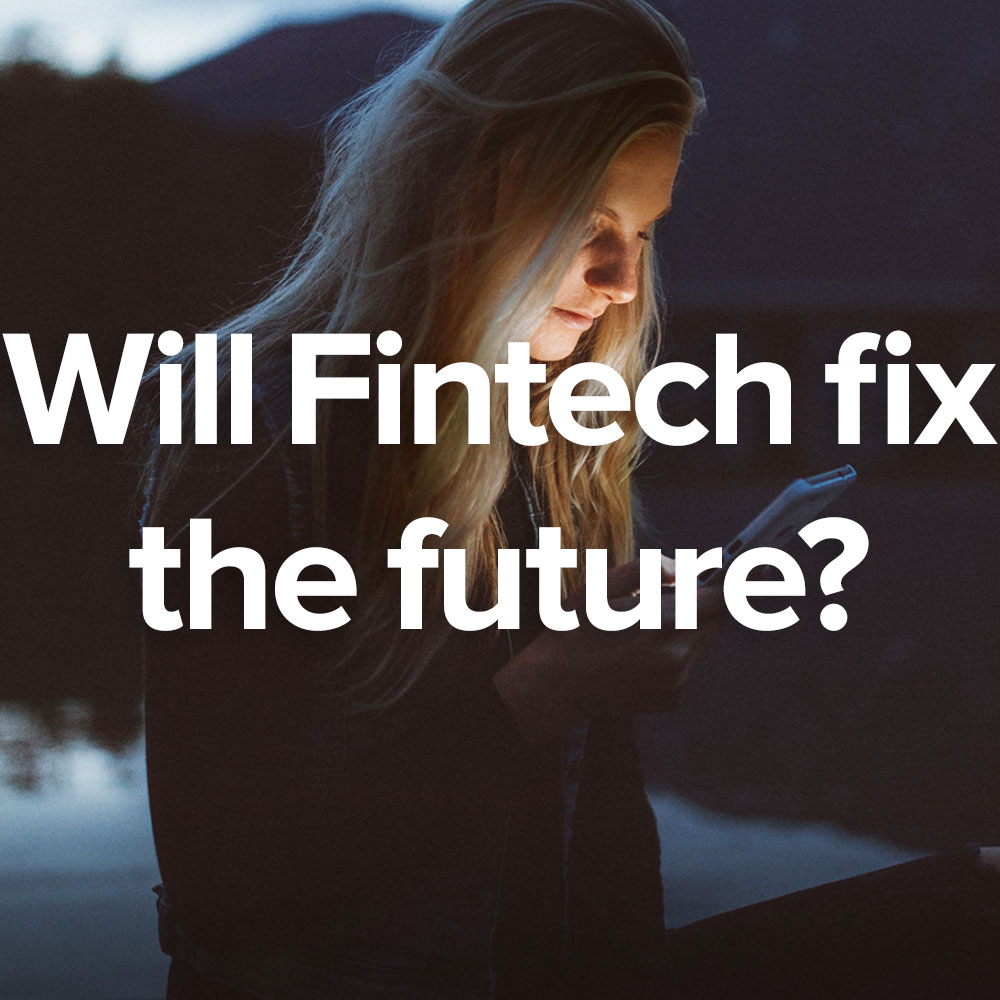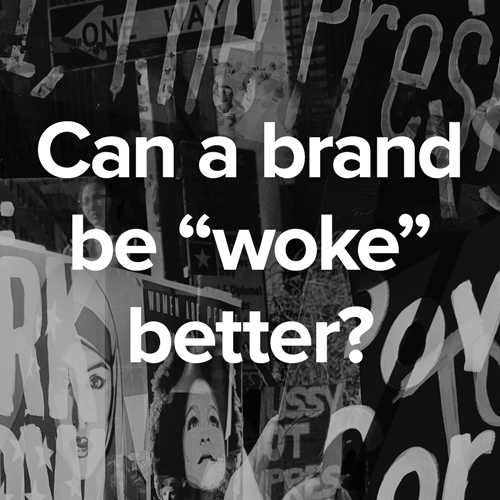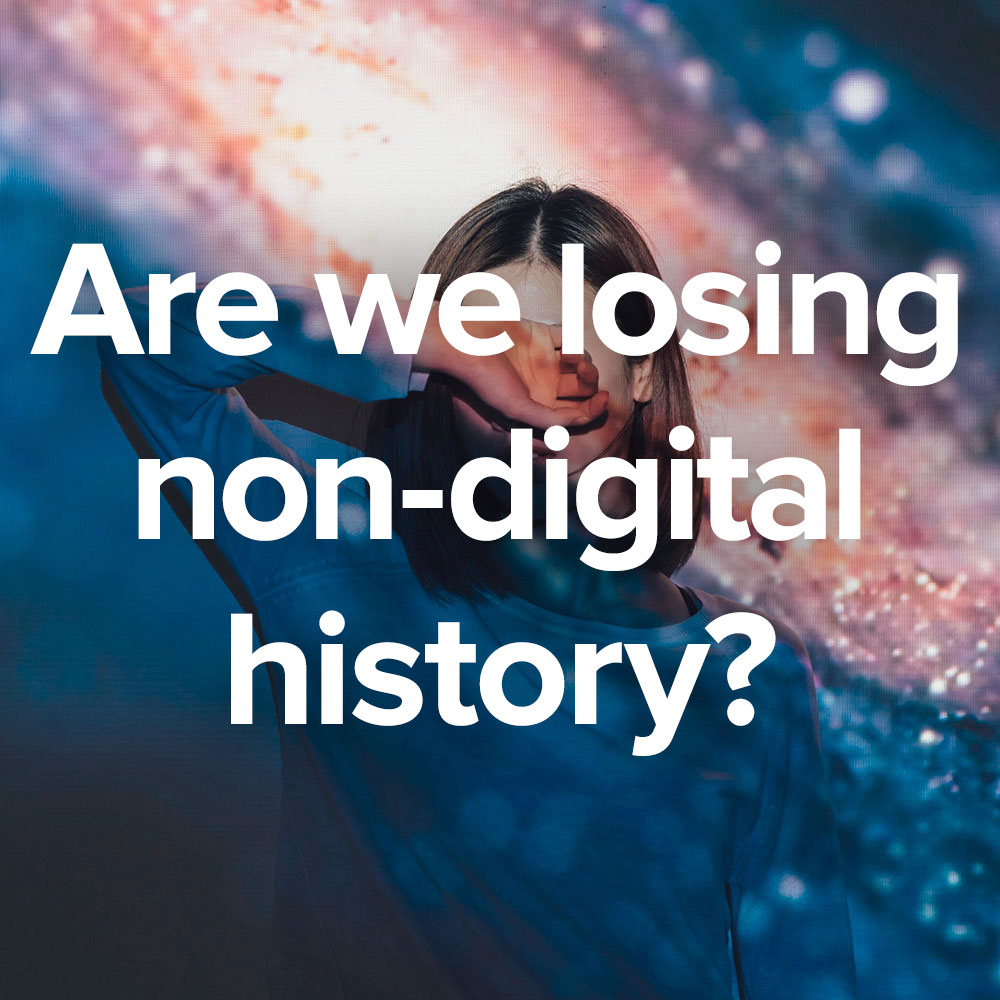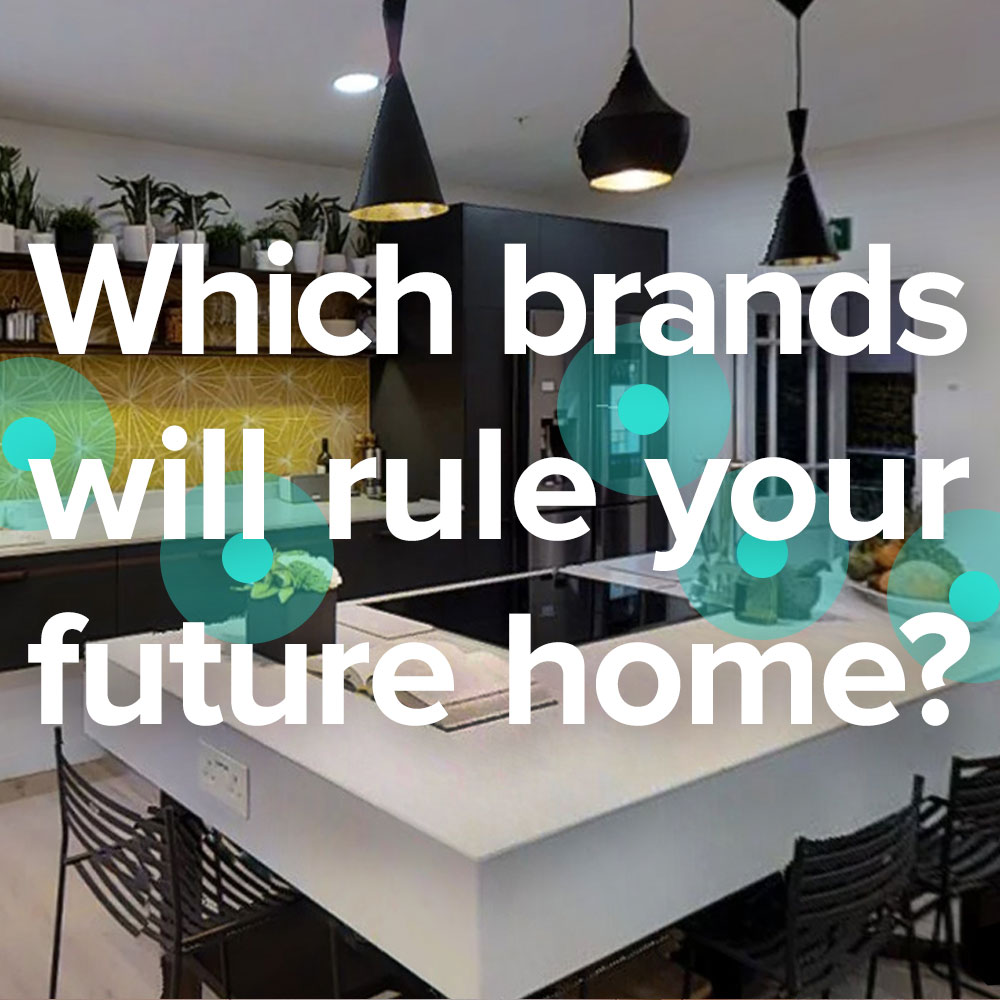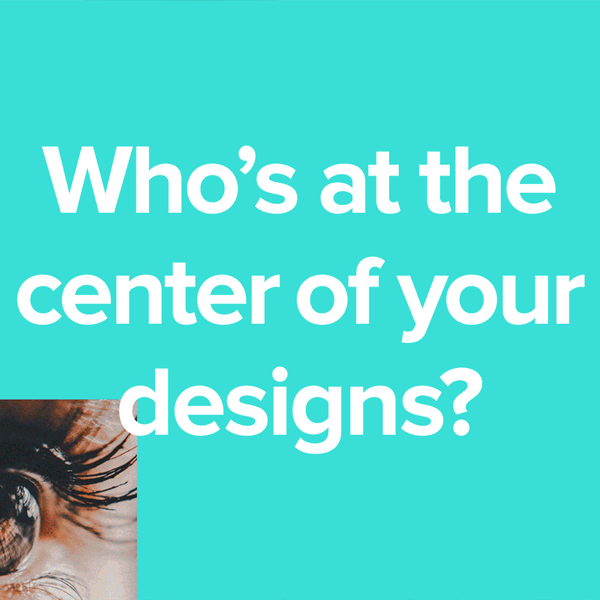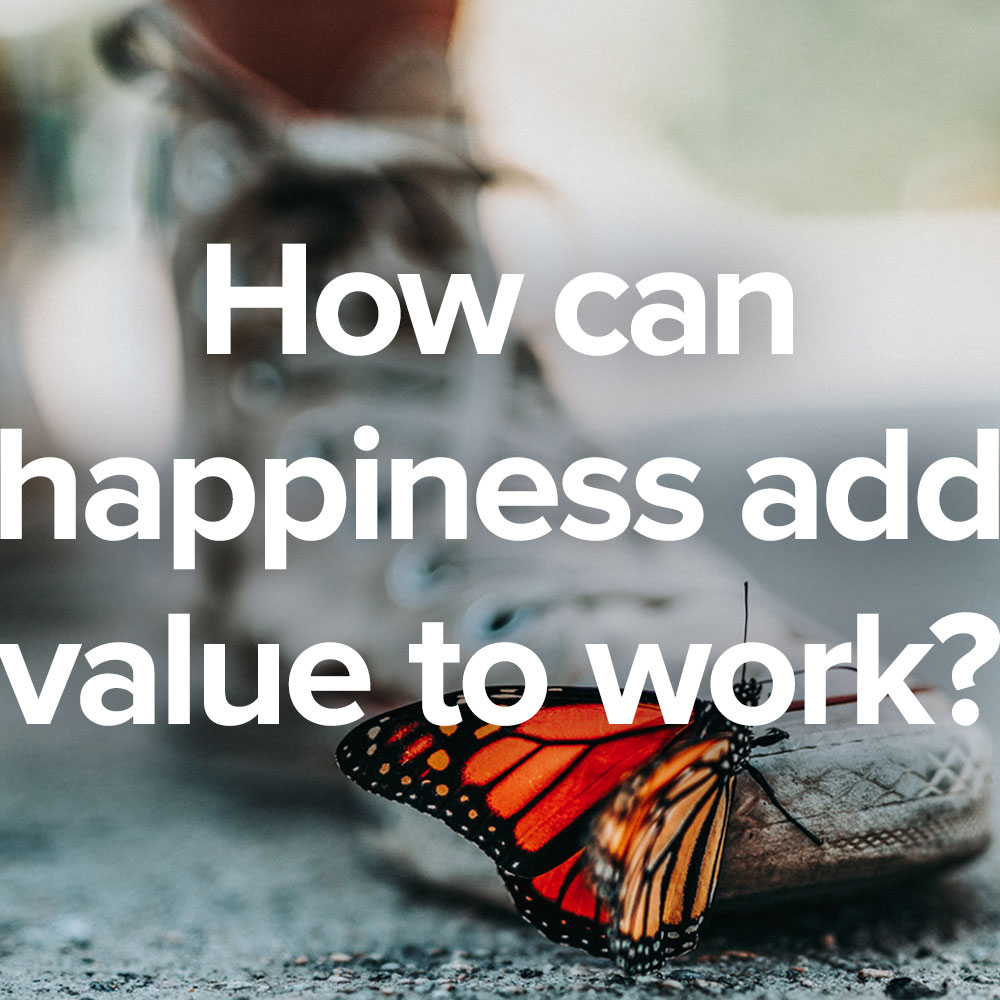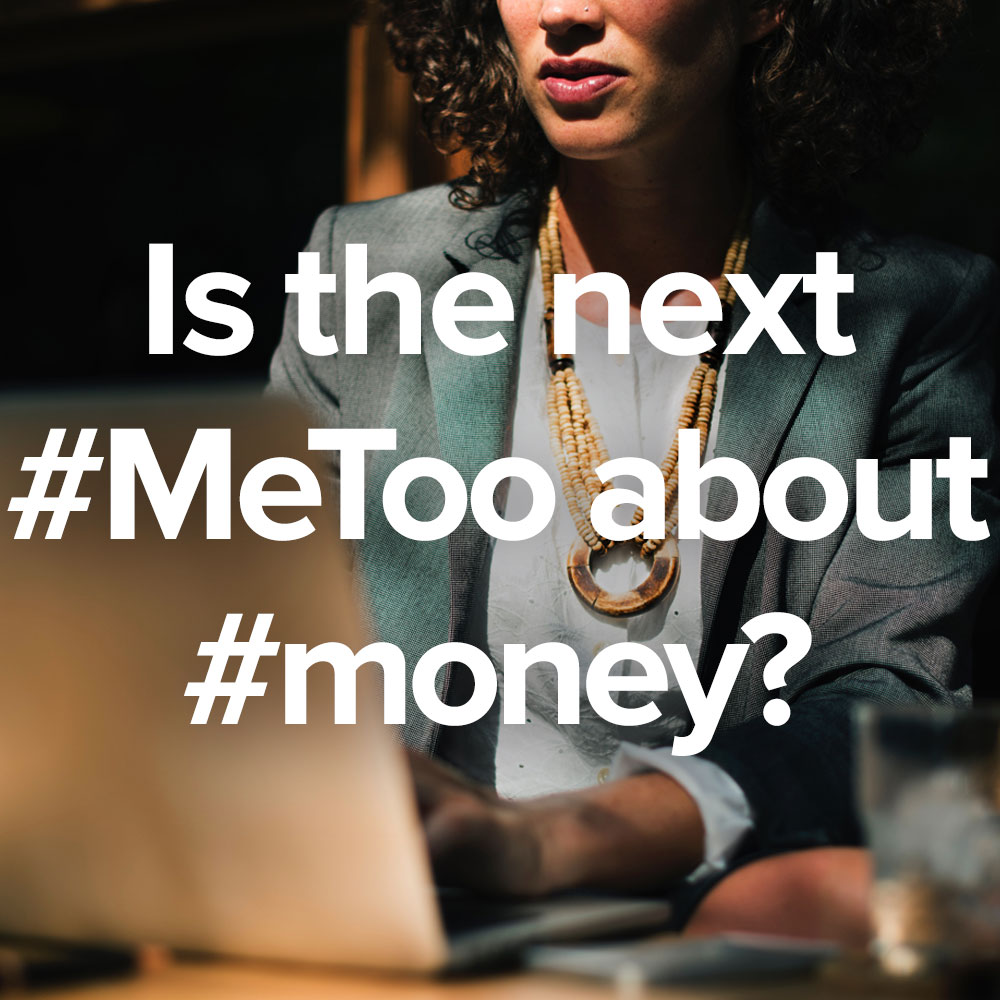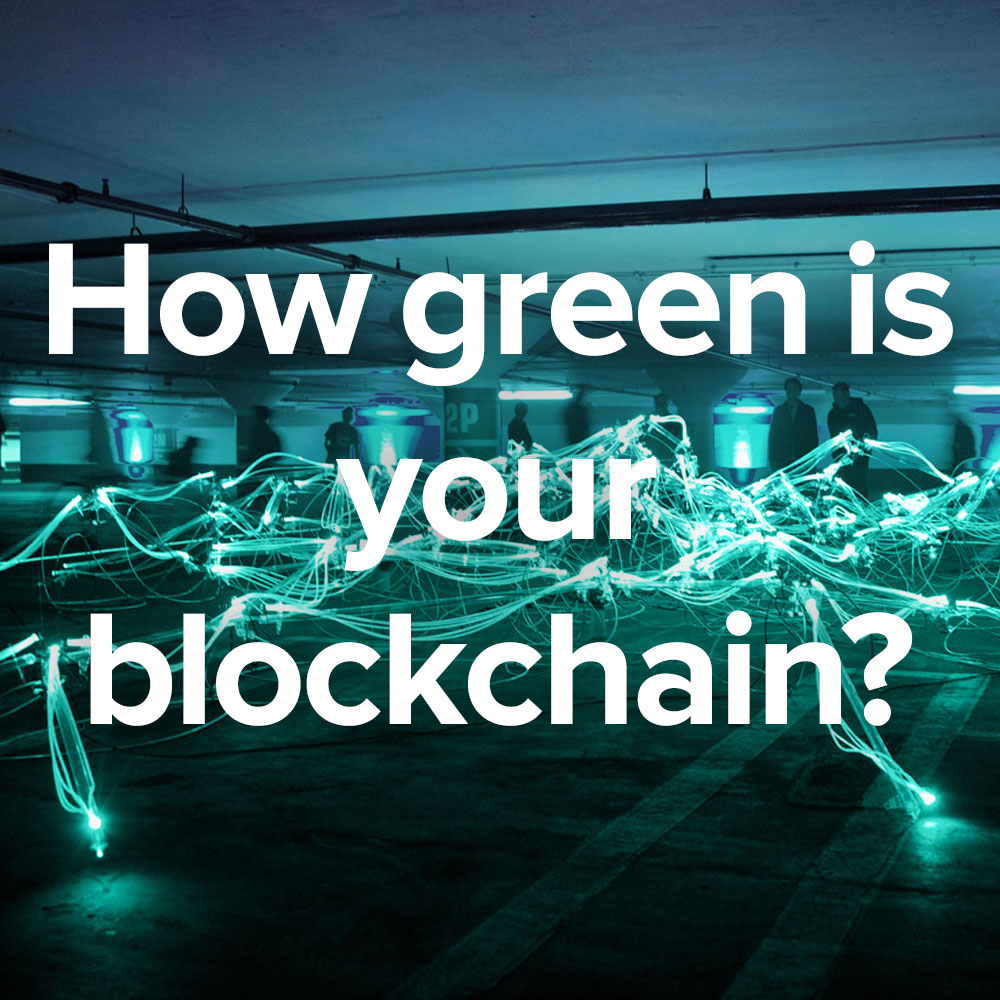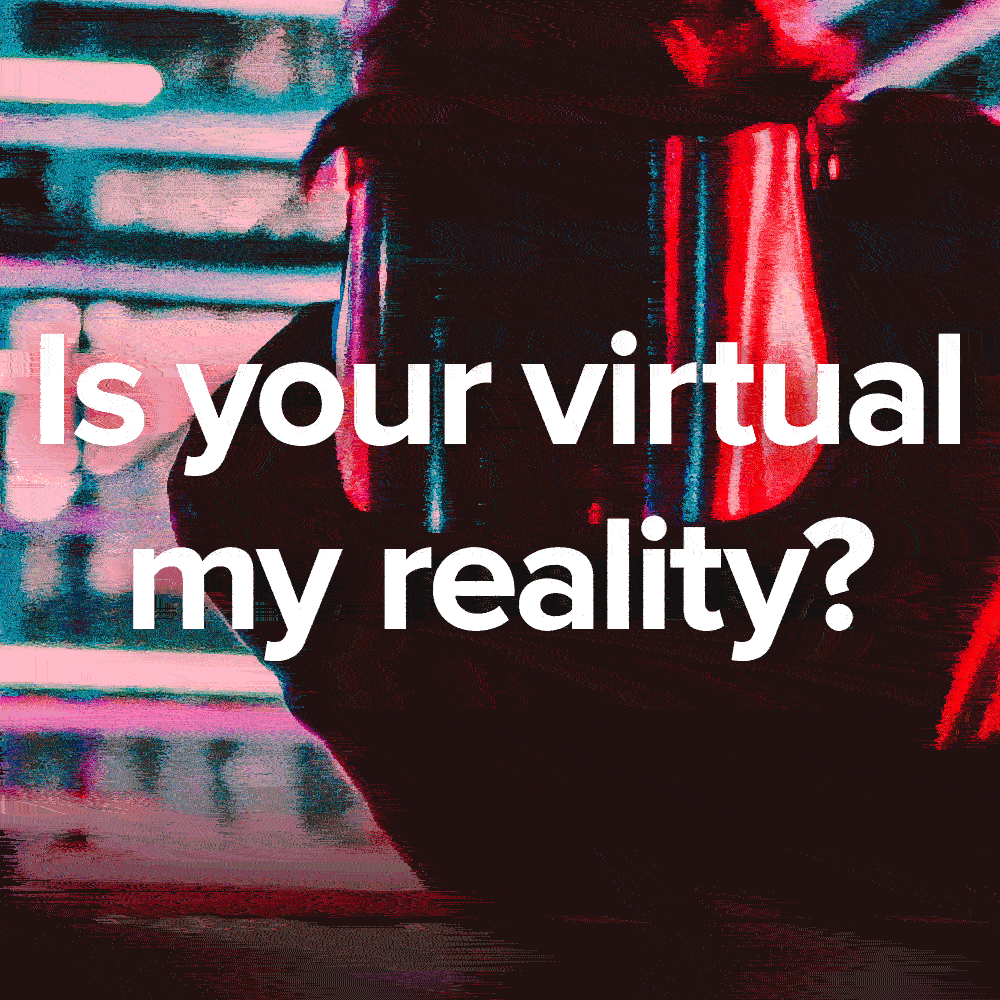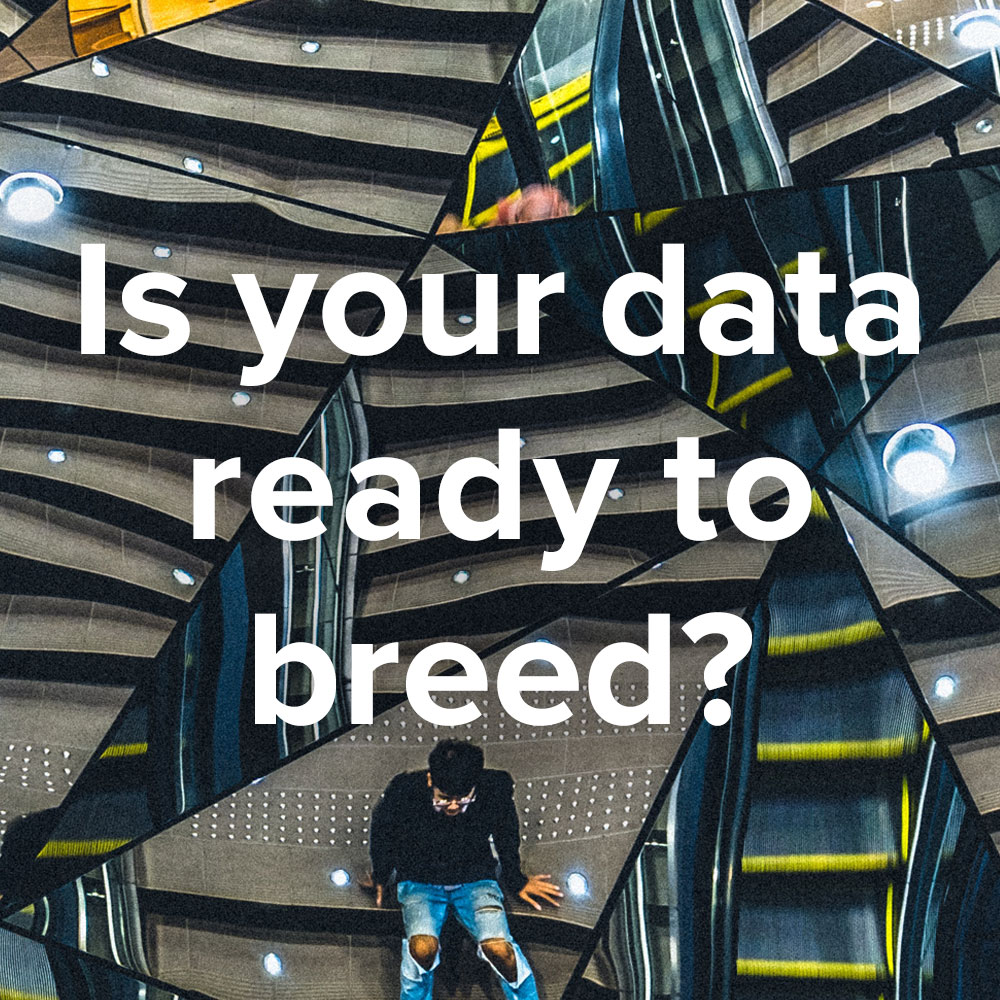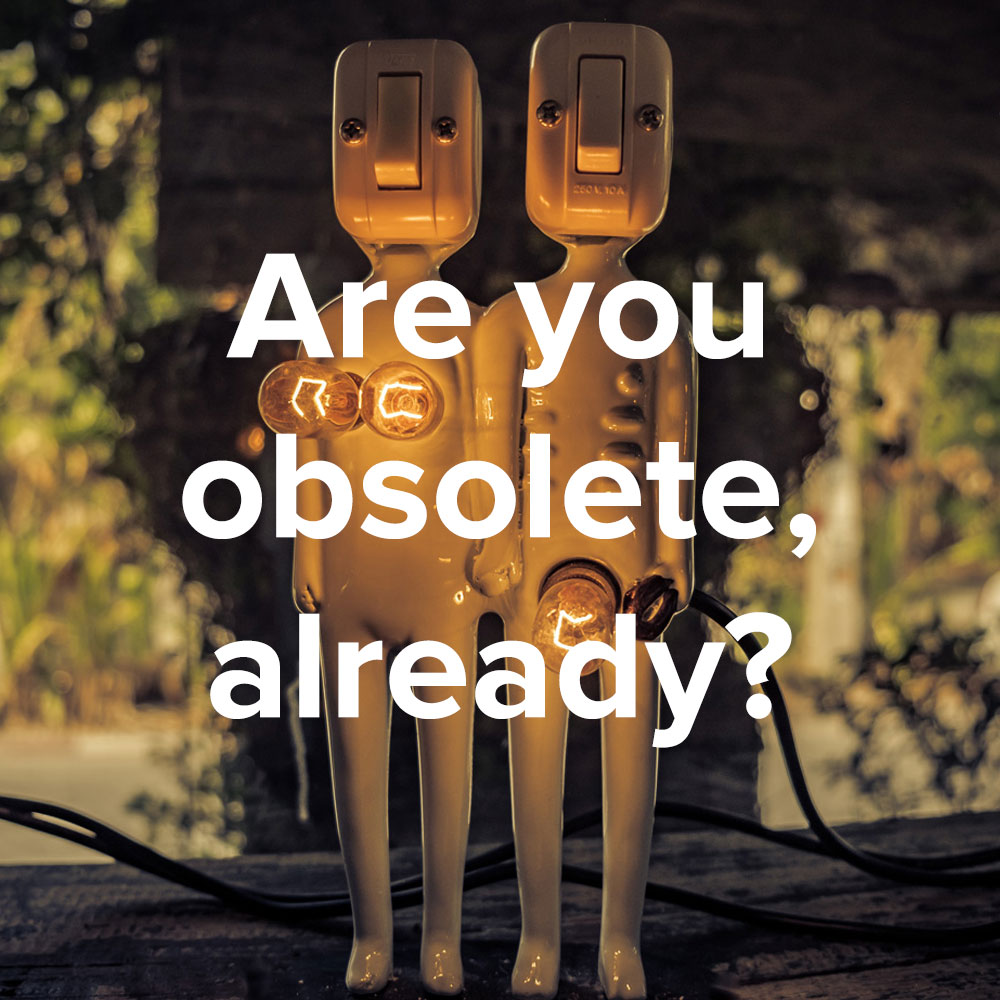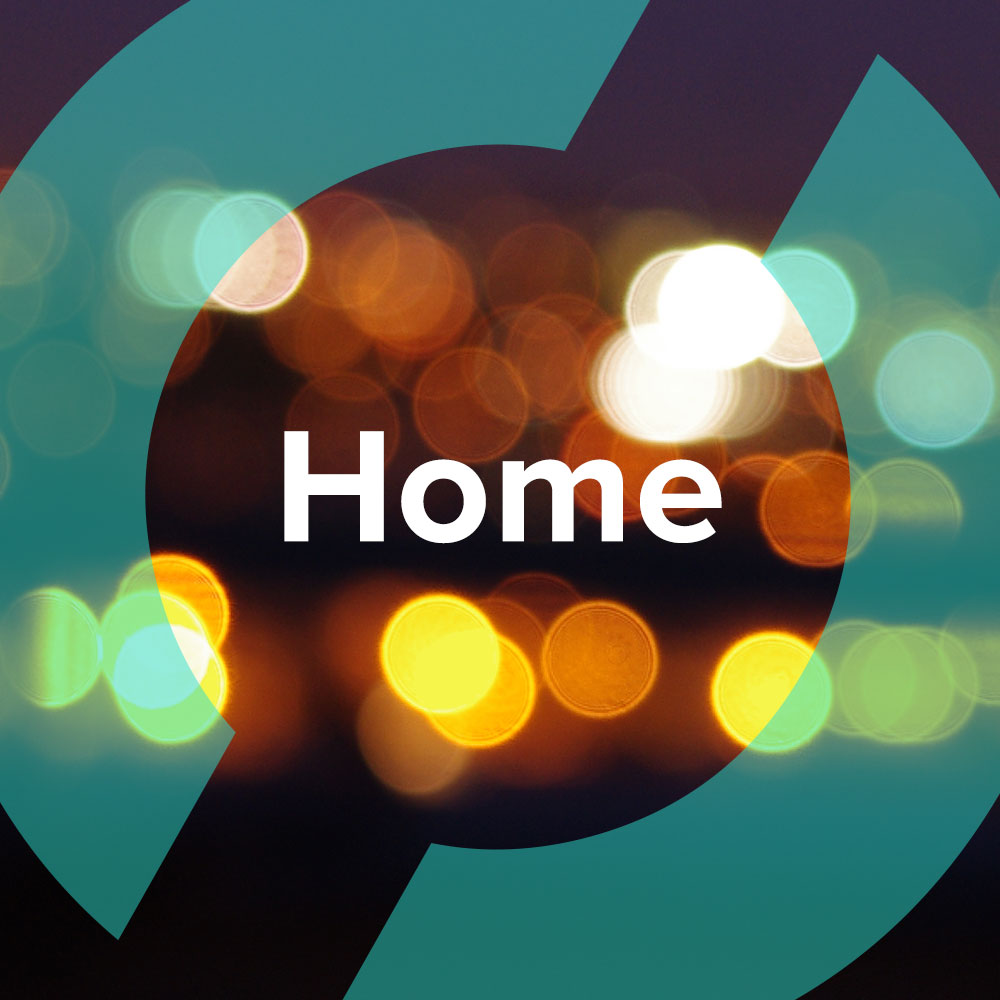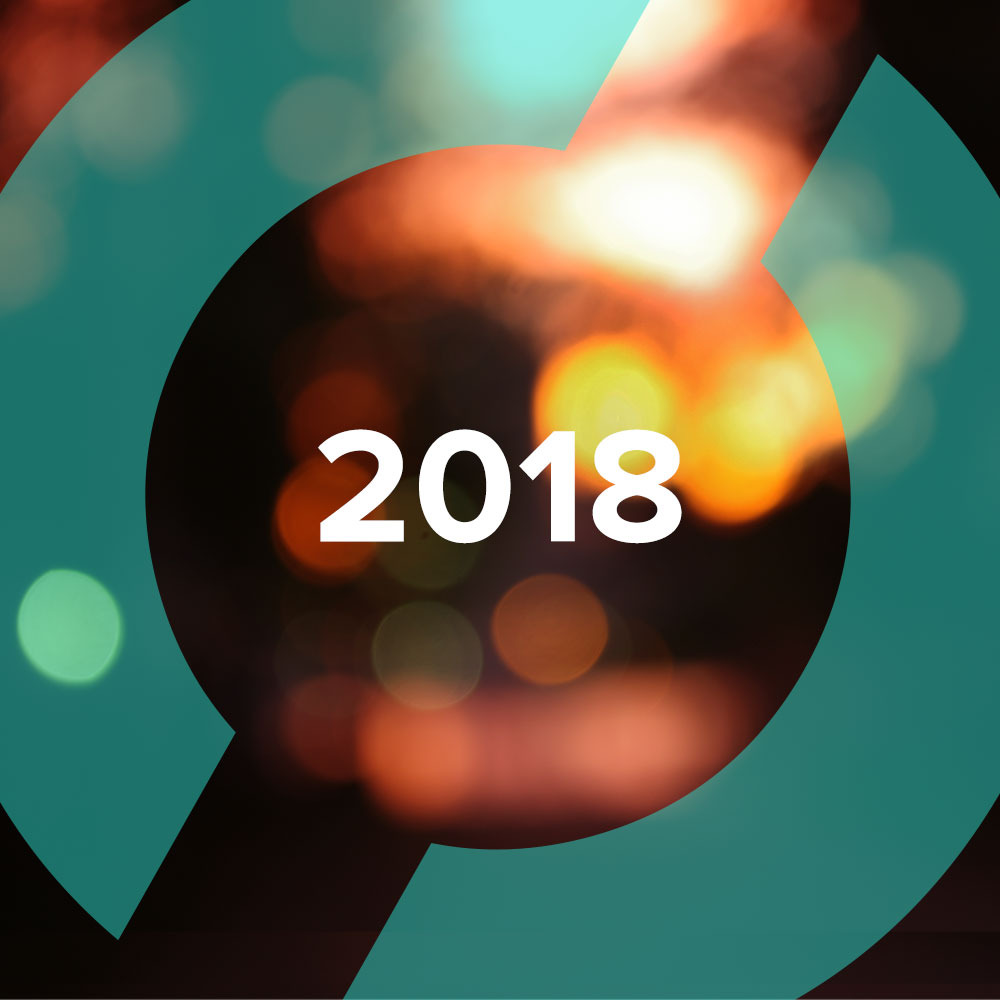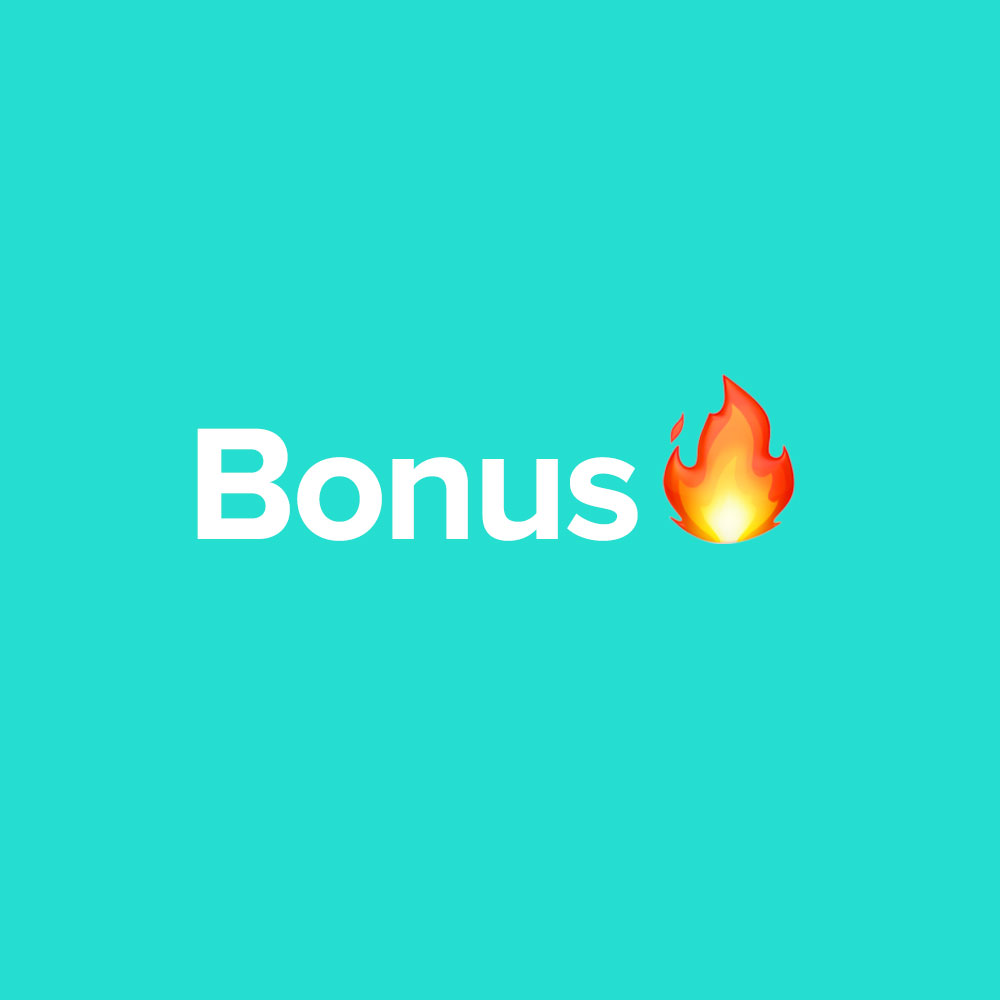“_________”
Adrianne & Kgomotso on Erasing ‘Isms.’
Ideally, in 2030, there will be no I&D jobs. Inclusion and diversity won’t be a siloed piece of business or section in an organization, but a natural part of the fabric of an organization. It will make for stronger organizations.
— Adrianne C. Smith
NYC 40.7128° N, 74.0060° W
Global Director of Inclusion and Diversity at WPP and
Cannes Can: Diversity Collective
— Kgomotso Taje
JHB 26.2041° S, 28.0473° E
Senior Content Manager at McCann Worldgroup
— We may not be living in unprecedented times, but sometimes, they can feel unprecedented to us. The coronavirus has taken on wings. It’s a great unknown. Many comparisons, most of them intended to comfort (and some intended to scare), are being made to the Spanish Flu that struck in the middle of World War I. But for most of us alive today, the Spanish Flu was not a lived experience.
On the other hand: racism, sexism, ageism, inequality, intolerance—these a lot of us run into with some frequency. We call these obstacles patently unacceptable, and still they persist. And like the coronavirus, they get around. Geographic borders offer no barriers, but that also means solutions can be found anywhere in the world and possibly be applied more widely.
To that end, Adrianne C. Smith, in New York City, and Kgomotso Taje, in Johannesburg, are applying unique black-female perspectives to problems involving diversity and inclusion. They are working on vaccines of a sort, building bridges by focusing on education, training, conversation and accountability. More prescriptively, they stress the need for people to leave comfort zones behind, open their eyes and mind, and embrace the uncomfortable.
Keeping with OPEN Topics tradition*, we had the pleasure of talking with both Smith and Taje in late February, as Black History Month came to a close and Women’s History Month beckoned. Smith is global director of inclusion and diversity at WPP and founder of the Cannes Can: Diversity Collective, an organization that brings young creatives of color to the annual Cannes Lions International Festival of Creativity in France, imbuing the travelers with an unparalleled sense of possibility. Taje is Senior Content Manager at McCann Worldgroup with a deep, varied resume that would be the envy of anyone, anywhere. The two may be on opposite sides of the management/labor divide, opposite sides of the world, but they share a desire to see those “-isms” eradicated in their lifetimes.
* Please see our 2019 chat with dynamic Nigerian agritech entrepreneur and Farmcrowdy founder Onyeka Akumah, and our 2018 confab with future-forward data scientist Dr. Axel Ngonga-Ngomo of Paderborn University.
Adrianne, let’s start with you. You just joined WPP, it’s the latest role for you in your long and successful career building bridges in media. And you have a pretty interesting title.
Adrianne C. Smith — Right. I am the newly appointed Global Director of Inclusion and Diversity, and I’m also the founder of the Cannes Can Diversity Collective. My first title, if you notice, I said “inclusion and diversity” and not “diversity and inclusion.” That was intentional, because we feel that inclusivity leads to diversity, so we want to be inclusive first and that will lead into creating a culturally diverse work environment.
That’s fascinating. Do you expect this to go viral? Will we soon be saying I&D instead of D&I?
Of course I do. With the team like we have at WPP, we will be thought-leaders in changing the narrative on how people view inclusion and diversity.
How did you come to pursue this as your life’s work?
I usually tell people that D&I is in my DNA. I say that because I was born to a mother who kneeled down in prayer, saying “Our Father, who art in heaven, hallowed be thy name,” next to my father, who, as a Muslim, faced the East. So, you can imagine what the Christmas holiday was like at my house, right? We didn’t have a Christmas tree, we had a Christmas couch. We never got my dad Christmas presents, but we made sure that every December 25th he got new socks and new shirts and anything he might’ve been hinting about for the last month or so. That was the ultimate place where I learned about compromise. Compromise was the key. Love, respect and compromise. That’s what I learned. I grew up like that.
“Diversity & Inclusion is in my DNA. I say that because I was born to a mother who kneeled down in prayer, saying ‘Our Father, who art in heaven, hallowed be thy name,’ next to my father, who, as a Muslim, faced the East... Compromise was the key. Love, respect and compromise.”
That’s great. Where did you grow up?
Tuscaloosa, Alabama.
Okay. Then I don’t have to ask you who you root for.
Roll Tide! (University of Alabama’s trademarked cheer for their athletics teams known as the Crimson Tide.)
Roll Tide, the University of Alabama. I’m in Nashville, Tennessee. Nashville is becoming an increasingly cosmopolitan city. It’s hard to find somebody here from here. In fact, just hearing a Southern accent is unusual. Still, my being a Northerner can be noticed. I don’t feel like anyone’s held it against me, but it is noticed. It’s all very weird.
“I think inclusion is important especially for some communities where it has the ability to break the cycle of generational poverty, by giving individuals who normally would not be exposed to certain opportunities and environments, a chance.*”
|
*Hei! Also visit our Cannes 🦁 2019 “Is OUT(side) the new IN?” event page for more essential ideas, images and audio.
Kgomotso, you live in South Africa, so you come to the Diversity & Inclusion (or Inclusion & Diversity) discussion from a different place than Adrianne and I do in the United States. Can you please give us a South African perspective?
We’re a newly democratic country, only 26 years. And we come from a very interesting place in the past. Diversity and inclusion is quite a hot topic in our country. We’ve come a really long way in terms of ensuring that diversity and inclusion is visible and being done in the workplace. We’re at a point where we’re starting to see certain people in positions, or in opportunities, that 26 years ago you would not necessarily have seen them in. But we’re at a place where you still feel like there is so much there still needs to be done, we still have a long way to go. We’re talking, talking, talking, but we need more, more, more to be done.
How did you end up as a Senior Content Manager at McCann Worldgroup, Kgomotso?
I was very fortunate in that my mom was able to take me to what is considered a Model C school [primarily parent-funded and -administered]. We had a decent education, and after high school, I managed to be able to go on for further education. It made it a little bit easier in terms of getting opportunities back then.
I gather that’s still an unusual experience?
Yes. When I look at other young South Africans, it’s different for them. For instance, they cannot afford a certain kind of education, which already closes the door for them to get certain opportunities. They don’t speak what’s considered at a well-enough level, so they become excluded from certain opportunities.
But the going hasn’t been all that easy for you, either?
I still get into a workplace and I feel like, it’s a little bit tougher for me as a woman, firstly, and then even more as a woman of color. I can only imagine how much tougher it is for a woman who is disabled and is also of a different color.
“While inclusion in South Africa has progressed, one factor that continues to be a challenge is the issue of pay disparity — contributing to the overall wealth gap in the country. To address this I think that we need to be aware that this is not an issue that can be solved in the next 2 to 5 years so therefore it requires individuals to constantly strive and push efforts aimed at inclusion but not only that but also to compensate fairly.*”
|
*Also visit our Cannes 🦁 2019 “Is OUT(side) the new IN?” event page for more essential ideas, images and audio.
Adrianne, is WPP the first one out there with the “I&D” concept? That’s brand-new to me.
We’re not the first, but I think we are probably, maybe going to definitely, have the loudest voice with it. Some stuff you can be first to market but if you’re not loud enough, nobody really hears it. I think with the power we have and my voice, of course, pushing out inclusion and diversity, I think we’ll make a difference. Definitely we’re not the first.
How does I&D work? How do the two elements fit with each other?
Let me give you a trajectory of the D&I space, in fact, I’ll start with Diversity. This journey is at least over 40+ years as it relates to the advertisement industry. We started with this concept of diversity just meaning we needed to change the industry away from this all-white-male thing that was happening that didn’t include many women. It did not include people of color. It was really a good old boys’ network.
Eventually, the Madison Avenue Project (research on the lack of African-American executives in the advertising industry from 2009) showed there was a huge disparity in the amount of women in leadership positions in the advertising industry. There was a pay disparity, of course.
Then we moved to a point featuring accountability for agencies and corporations that don’t want to be a part of an EEOC [Equal Employment Opportunity Commission] filing. They don’t want to be protested against. They really want to be able to pursue some self-correcting measures.
Do you have an example?
Organizations like Goldman Sachs, which recently said it wasn’t going to invest in any organizations unless they had a diverse board. Companies like that are setting that trend to move the journey this way. Diversity and its language shifted to inclusion because if you’re not being inclusive, you automatically are not being diverse. We have to create an environment where people are feeling welcome.
Then we’ve moved into equity. You could be inclusive, but if you have people at the table who are doing the exact same job and are not making the same amount of money, then equity is not there. Or, you have people who are qualified to do the exact same thing, but someone is promoted over them who don’t have the exact same skill set, or worse. That’s a problem, and we have an issue with equity there.
Where are we now along the paradigm?
My theory is that we are moving into an age of accountability, where individuals and organizations should make sure that they are creating a culture and an environment where everyone is feeling safe, everyone feels like they can achieve at an equal rate, and that they have protection and are being celebrated and protected within that work space.
Speaking of safe spaces, Kgomotso, are workplaces in South Africa set up so that you can talk freely there about D&I issues?
Yes and no. It’s still very uncomfortable. Once I was doing an exit interview, and we broached the subject of D&I, and I explained to the HR individual at the time that I felt like there wasn’t a place for me to rise in this company. Yes, there are a lot of creators who look like me, that are up and coming, but when you look at the positions that matter, it seemed like it wasn’t something that was easily accepted.
Adrianne, I read something recently that suggested that Baby Boomers and Generation X look at diversity and inclusion in a more legal framework. Generation Z and Millennials approach it more as in “we want our voice to be heard.” Does that make sense? Is that true?
The Millennials are leading the charge about ’I want to be able to belong and do as I please.’ They are far ahead of the workplace, where the workplace is still very traditional in terms of its hiring practices and how it runs its business in not being as inclusive. Millennials are saying we can do it all. There’s not this big discriminatory space. It’s ’we are accepting of each other.’ There is definitely a gap between the two.
The workplace is still winning?
Generation X is taking that control from the Baby Boomers. But I think there’s definitely going to be a shift once Millennials move into senior management positions.
How much patience does that require?
That’s a good question. I think most people are out of patience, and they don’t want to talk about it. One of my things is, let’s talk about it, let’s be about it. There should be opportunities, as opposed to spending money on recruiting where you then have this massive exodus of employees because they don’t feel like they belong or they’re not being treated fairly. Give them that promotion they ask for. Give them the pay raise they deserve. I think brands are getting tired of that because the retention rate of employees is not where it should be.
Kgomotso, how would you move the needle forward in South Africa?
Skills. Because at the end of the day, whether you have good education or not, skill is the one thing that’s going to give people access or ensure that inclusivity takes place. Obviously, not everyone can get that really great education, but ensuring that we share our skills to empower young people so that they can access those opportunities is important. A huge part of South African youth are unemployed. We need to empower their skills.
“Skills will move the needle forward in South Africa. Whether you have good education or not, skill is the thing that’s going to give people access or ensure that inclusivity takes place.”
It sounds like an investment in training.
Yes.
Probably not when the person is in their 20s, but much earlier.
Yes, definitely.
How do you network? How did you find your jobs?
For me, it was just a number of things. I was very fortunate, in school. I’ve always been very active in terms of the media space. The one thing that actually got my foot in the door was an internship at Y Academy (see the experience of student Karabo Moshodi below). There is a regional radio station in Joburg [Johannesburg] called YFM, and they had implemented a six-month internship that covered all areas in terms of radio. If you were just a fresh graduate with no experience in radio, you could compete to get into the Y Academy. They only selected 12 participants. At the time, there were like 2000 applicants but they only picked 12. We went through that six-month training, and that’s how I was able to get into radio. Here in South Africa, it’s not something that’s very easily accessible, especially if you don’t have any other experience in it. There’s very few radio stations in South Africa to start with.
“Sharing our skills to empower young people so that they can access opportunities is important for inclusion, diversity and equality.”
I’ve heard companies are starting their own training academies, in effect.
Yes. So the spirit is definitely key there. Conversations are definitely taking place. It just needs to be the main focus, because it’s slowly moving and there’s a lot that still needs to be done.
Adrianne, you’ve dedicated your career to creating ways for underrepresented talent to not just succeed but excel in advertising and marketing media, and other creative industries, right? For example, you founded the Cannes Can: Diversity Collective, with its inclusive Inkwell Beach at the Cannes Lions 2018/19 (see below). How challenging was it for you when you started? How challenging is it for you now? Have you had to change your tactics over the years to meet your objectives?
I really just thought about that recently. I started my career in advertising at Leo Burnett in Chicago. My experience there was very unlike the experience that other young people of color are dealing with right now. There is a line that says, ’you cannot be what you don’t see.’ If you don’t have people in places that you can aspire to be, then it’s a tough time. When I was at Leo Burnett, I was in the media buying group. I saw women in leadership positions. It wasn’t a foreign thing for me. If we step forward 20, 25 years later, at most of the agencies, you don’t see those people that look like me in these positions very often. It is a struggle.
For me, maybe I took it for granted and I just worked in this great bubble at the time. I had aspirations. I could see where I could actually level-up to. I ended up switching industries and went more on the entertainment and sales side, but again, I always saw women, and women of color, in power who could so some amazing things. But then I started to hear other young people say they didn’t have support, they didn’t have sponsors, mentors who could help pull them up. I also heard women who were in leadership positions saying it’s lonely at the top. That struck me in such a way that I said then that something had to be done. You shouldn’t be lonely at the top and people in these entry-level positions shouldn’t have this gap where they don’t see opportunities to move up, or there aren’t pathways for them to move up.
It became a calling?
It became one of those burning things in me that said: We have to change this. We have to encourage young people to stay in this industry. We have to find better ways to recruit talent. We have to find better ways to retain talent. I think maybe the frustrating part sometimes becomes proving that there’s value in having an inclusive and diverse environment, because not everyone gets it or sees the power in it. They think, ’I’m not racist, I’m not sexist, that’s not me,’ when in actuality, the culture that we are fostering in this industry sometimes is very much all of those -isms that we face.
If you’re looking to recruit women, people of color, or female people of color, or whomever, do you send recruiters out into the field, out to the grad schools, out to the college campuses who look like these people? Is that a tactic? Do you guys do that?
We’ve got many agencies under the WPP umbrella. What we are doing is making sure that when our recruiters go out, they’re looking for the best talent. It doesn’t matter what color, what sex, what race, what neuro-diversity issue you might have, can we find a way to find a great fit within the culture of our organization? The short answer would be, yes, I would hope so, that they do that. That’s the best way. We had a great meeting recently about how we definitely have to think about where we recruit from as it relates to affinity groups, whether it be women of color, women organizations, LGBTQAI [lesbian, gay, bisexual, transgender, queer or questioning, asexual or allied, intersex]. We want all these organizations to know, and these people that fit into these affinity groups, that they are welcome within our organization. The idea is to recruit all and see what happens. Find the best talent within those groups.
Kgomotso, are clients influencing the discussion in South Africa?
There are a few agencies that are making headway in making sure diversity and inclusion happens, but it’s also amazing to see people in big positions on the client side saying that they will not work with an agency or a supplier that does not adhere to D&I requirements. That shows agencies and media houses being held accountable. Some agencies are still quite traditional. They come from that era when agencies are still the white boys’ club. But a shift is definitely taking place, because more and more diversified creators are getting opportunities.
“We’re at a place where you still feel like there is so much there still needs to be done, we still have a long way to go. We’re talking, talking, talking, but we need more, more, more to be done.”
Adrianne, are you seeing that here in the United States as well?
Yes. I mean, we can use Beyonce as an example on how a brand lost a huge opportunity to have her be a representative. She walked into a room and did not see anyone in that room that looked like her and she walked right out. As I mentioned early on that accountability piece, brands are now saying you must act differently. I think that’s only a small piece of the puzzle. But it’s fantastic that they are creating this mandate.
What’s your Vision 2020, Adrianne?
My goal for 2020 is to keep moving that needle forward. Keep doing what I’ve been doing. I’ve had the opportunity to do it on a larger scale. One of the things that I’ve learned in the past couple of years is that my initial view of what inclusion and diversity looked like was very narrow, because I was only looking at it from my own perspective. I was thinking about it being about black, and being about black and white and male versus female. But the issue here in the States is not the same as the issue somewhere else in the world. Inclusion and diversity means something different everywhere. Once you’re open to that, you’re able to look and empathize and understand a little bit differently, right? My goal is to really continue to understand the different regions and what it means all over the world.
And 10 years from now?
Ideally, in 2030, there will be no I&D jobs. Inclusion and diversity won’t be a siloed piece of business or section in an organization, but a natural part of the fabric of what an organization is doing. It will be a natural thing that you’re just being inclusive. It will make for stronger organizations.



